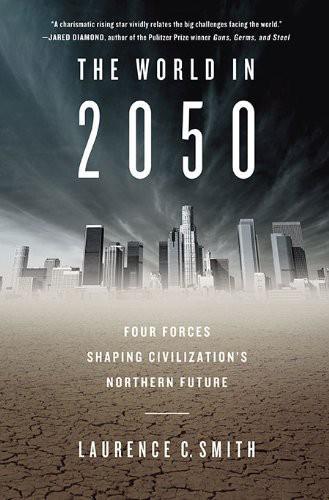
The World in 2050: Four Forces Shaping Civilization's Northern Future
by
Laurence C. Smith
Published 22 Sep 2010
These data would prove that the Lomonosov Ridge—an underwater mountain chain, rising some three thousand meters above the seafloor, that bisects the Arctic Ocean—was geologically attached to Russia’s continental shelf. This would win her sovereignty of a huge chunk of ocean floor—possibly including the North Pole—in accordance with the United Nations Convention on the Law of the Sea (UNCLOS). UNCLOS and geology are critically important to this story, as we shall see shortly. But in late 2007 the world’s eyes were transfixed by that flag, not sediment samples. The great global economic contraction was still a year away. Energy demand was soaring and resurgent Russia, fueled by hundred-dollars-a-barrel oil and Putin’s steely gaze, was growing increasingly assertive on the world stage.
…
Instead, there is in place a remarkably civil international network, one that is working cooperatively and effectively at many levels of governance. The Rule of Law The second reason to doubt the eruption of an Arctic War lies in UNCLOS, the United Nations Convention on the Law of the Sea. Contrary to popular perception the Arctic is not a ruptured piñata. On land, its international political borders are uncontested. For the Arctic Ocean, there are now clear procedural rules for laying claim to its seabed, and indeed any other seabed. Most importantly, just about every country in the world seems to be following them. UNCLOS was negotiated over a nine-year period from 1973 to 1982 and has emerged as one of the most sweeping, stabilizing international treaties in the world.
…
World interest in the Arctic, in particular, is fueled either by environmental concern for its threatened ecosystems, or excitement over perceived new bonanzas in oil and gas. The newest frontier is the Arctic seabed. The previous chapter discussed the geopolitical commotion this dawning realization has spawned, and the critical importance of the United Nations Convention on the Law of the Sea (UNCLOS). A 2008 auction offered by the U.S. Minerals Management Service sold a whopping $2.8 billion worth of Arctic offshore leases; the Canadian government similarly won record-breaking bids for leases in the Beaufort Sea.408 In 2009 a first comprehensive assessment of the Arctic Ocean’s oil and gas potential was published in Science by the U.S.
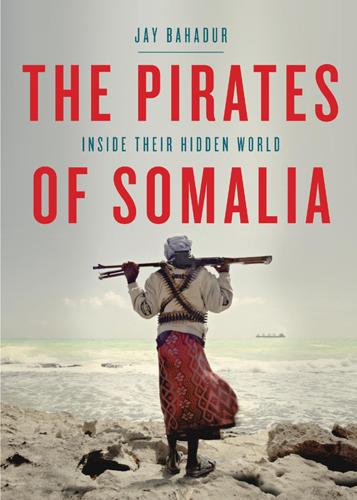
The Pirates of Somalia: Inside Their Hidden World
by
Jay Bahadur
Published 18 Jul 2011
The metaphor was not entirely apt; unlike the streets of London, on the high seas it is not a crime under international law to carry firearms, even when they consist of a rather suspicious assortment of Kalashnikovs and rocket-propelled grenade (RPG) launchers. The United Nations Convention on the Law of the Sea (UNCLOS) permits the seizure of “pirate ship[s] or aircraft” without actually catching the occupants in an act of piracy but also without clarifying what constitutes adequate grounds to do so. This omission is especially problematic given that a Somali fishing boat with a few Kalashnikovs stashed in the bottom could as easily contain legitimate fishermen as pirates. The danger is that by prosecuting suspects for “conspiracy to commit piracy,” countries would be giving an unprecedented interpretation to UNCLOS, one that unfairly targets all seafaring Somalis.
…
* * * Since ancient Rome, pirates have been labelled as hostis humani generis—“enemies of all mankind”—and piracy has been considered a crime of universal jurisdiction, giving states the right to arrest and prosecute suspected offenders outside national boundaries, such as the high seas. Two principal instruments of modern international law define the procedures for exercising this jurisdiction: the 1982 United Nations Convention on the Law of the Sea (UNCLOS) and the 1988 Convention for the Suppression of Unlawful Acts against the Safety of Maritime Navigation (SUA Convention). Of the two, the SUA Convention is considered to be the more robust, as it contains a broader definition of piracy and includes explicit instructions for extraditions amongst its signatories.
…
The legal argument used to reject the appeal rested on two principles: first, that piracy on the high seas was a crime under the Kenyan penal code; second, that piracy was a crime under international customary law, or jus gentium, and thus the Kenyan High Court was justified in extending its jurisdiction beyond the nation’s borders. Ibid., 4, 8–9. 11. “Jail Sentence for Somali pirates,” BBC News, November 1, 2006, http://www.bbc.co.uk/news. 12. Quoted in Gathii, “Jurisdiction to Prosecute Non-National Pirates,” 11–12. Article 101 of the UN Convention on the Law of the Sea defines piracy as follows: (a) any illegal acts of violence or detention, or any act of depredation, committed for private ends by the crew or the passengers of a private ship or a private aircraft, and directed: (i) on the high seas, against another ship or aircraft, or against persons or property on board such ship or aircraft; (ii) against a ship, aircraft, persons or property in a place outside the jurisdiction of any State; (b) any act of voluntary participation in the operation of a ship or of an aircraft with knowledge of facts making it a pirate ship or aircraft; (c) any act of inciting or of intentionally facilitating an act described in subparagraph (a) or (b). 13.

A City on Mars: Can We Settle Space, Should We Settle Space, and Have We Really Thought This Through?
by
Kelly Weinersmith
and
Zach Weinersmith
Published 6 Nov 2023
Is there a way to have an ATS-like regime that nevertheless allows some exploitation? Of course—that’s the Moon Agreement. But it failed, and so we look to one last regime, which may present the best hope for a path forward. Governing the Deep Seabed Since 1994, the bottom of the sea has been governed under the UN Convention on the Law of the Sea, or just UNCLOS. Why did humanity wait so long? After all, the deep sea bottom has been there for a few billion years, no doubt patiently waiting for a species of talking apes to shout “MINE!” The basic deal is that like the Moon, until the mid-twentieth century, a proposal to mine the sea bottom would’ve sounded as plausible as a proposal to harvest pixie dust.
…
See also specific titles Trump, Donald, 265, 266 Tsibliyev, Vasily, 167–68 Tsiolkovsky, Konstantin, 19, 221, 229 Turkey, 320–21 Turner Thesis, 33–34 Two Treatises on Government (Locke), 295 Tyson, Neil deGrasse, 368 U UFA Studios (Berlin), 114–15 Ukraine, 30, 33, 315, 362, 372 underground space settlements, 12, 53, 83–84, 170, 187 United Arab Emirates, 251 United Kingdom, 269, 284, 285–86, 292, 320–21 United Nations, 225, 251, 306 allows for self-defense, 365 and Antarctica, 287 purpose/powers of, 235 register space launches with, 243 a seat at, 313–15, 319–20, 322, 325 space treaties of, 240, 264, 269 weapons in orbit resolution, 232 world population report of, 154 See also Moon Agreement; Outer Space Treaty (OST) UN Committee on the Peaceful Uses of Outer Space, 169–70 UN Convention on the Law of the Sea (UNCLOS), 289–93, 386 United States law for rocket ads, 169 money spent on space, 39 nuclear fission reactors of, 197–98 and private-property regime, 306–7 resource exploitation laws of, 250–51 space assets of, 361–62 as world’s sole nuclear power, 224–25 See also Apollo missions; Biosphere 2; International Space Station (ISS); NASA; specific subjects and treaties US Air Force, 14, 362 US Commercial Space Launch Competitiveness Act, 264–65 US Congress, 228, 261, 265, 298, 302 US Space Force, 14, 270, 362 Uranus, 139 V vacuum of space, 47–48, 49, 50–51, 187, 207 vegans/vegetarians, in space, 182–83 Vela, Rodolfo, 178 Venus, 118–19, 139, 160, 161–62, 170, 182 Viking probes, 145 Virts, Terry, 55, 78, 96, 98, 104 vision impairment, 63–64, 385 Volkov, Vladislav, 48 Volynov, Boris, 101–2 von Braun, Wernher, 222–24, 227, 230–31 von der Dunk, Frans, 312 von Kármán, Theodore, 221 Vostok Station (Antarctica), 329–30 Voyager probes, 197 W Wagner, Robert, 122, 130, 205 Wang, Taylor, 99–100 war, in space, 4, 354 causes of, 27, 369–74, 381–82 and First Gulf War, 361 in near- to long-term, 367–72 satellites and, 362, 365 scarcity and, 368–69 weapons for, 360–62, 363–64, 365, 366, 367 will be horrific, 334, 372–74 war, on Earth, 29 causes of, 26–27, 369–74 increasing danger of, 381–82 mitigation of, 16, 27–28, 308 rockets used in, 220–25 and space activity, 37, 361–62, 372–74 space settlements and, 37, 367–68, 380–82 Wasser, Alan, 298–301 waste (human), disposal of lunar poo bags, 122, 132, 144, 175, 251 managing of, 173 on space settlements, 65, 172, 175–76 on space stations, 92, 175–76 on spacecraft, 173, 174 urination devices for, 215–16 water, 9, 12 on asteroids, 160 on Mars, 142–43, 145–46 on the Moon, 132–33, 134–35, 248, 269, 288, 304 recycling of, 188, 357 as settlement shield, 201–2 on space voyages, 140, 176, 178 for survival in space, 132–34 wealth, 21, 25–27, 159, 225, 306, 323 weaponization, of space, 169, 360–67 weapons of mass destruction, 232, 244, 377 Weir, Andy, 21, 179–80, 190 White, Edward, II, 49 White, Frank, 31 White Sands, New Mexico, 224 Whitson, Peggy, 175 Why We Fight (Blattman), 369 wind power, 17, 157, 193 Wolfsohn, Joel David, 295 World Bank, 26 World War I, 113, 316 World War II, 222–25, 231, 279, 283 Y Young, John, 123, 137 Yugoslavia, 324 Z Zholobov, Vitaly, 101–2 Zubrin, Robert, 17, 310, 326 A B C D E F G H I J K L M N O P Q R S T U V W X Y Z OceanofPDF.com About the Author The Weinersmiths, a wife-and-husband research team, cowrote the New York Times bestselling popular science book Soonish, a Wall Street Journal and Popular Science book of the year.
…
But whereas only about 10 percent of the states in the UN have ratified the Moon Agreement, nearly 90 percent have ratified UNCLOS. This is especially interesting for space, because the way UNCLOS regulates the sea bottom is broadly similar to how the Moon Agreement would have regulated space. It preserves the seabed as a commons while at least in principle allowing humanity to access its mineral wealth. Putting Holes in the Bottom of the Sea, or, How Does UNCLOS Work? Under UNCLOS, nations get jurisdiction over an “exclusive economic zone” off their coast. These are big—generally about two hundred nautical miles out, although sometimes substantially longer depending on a bunch of technical stuff at the intersection of oceanography and law.
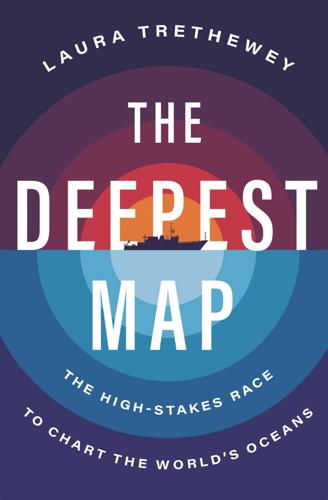
The Deepest Map
by
Laura Trethewey
Published 15 May 2023
China’s nine-dash line swoops south from the coast of mainland China along the coasts of Vietnam, Malaysia, Brunei, the Philippines, and Taiwan, enclosing 80 to 90 percent of the sea within a U-shaped area10 larger than the size of Mexico. In 2016, a tribunal at The Hague found that the line had no legal standing in the United Nations Convention on the Law of the Sea (UNCLOS), the first all-encompassing international treaty for the global ocean11 and one that China has signed.12 It also found that China had destroyed the marine environment by dumping sand on reefs and building islands. (Accretion is another time-honored tactic for claiming land by stealing it from the seafloor—the new terra nullius.)
…
The nodule builds up minerals around the hard center at a rate of 1 inch every million years. As I write this in late 2022, commercial deep-sea mining has yet to begin, but that may change very soon. In June 2021, the president of the Pacific island state of Nauru triggered an obscure mechanism in the United Nations Convention on the Law of the Sea (UNCLOS) that allows a nation to fast-track and finalize mining regulations within two years.10 After decades of debate at the International Seabed Authority (ISA) in Kingston, Jamaica, the intergovernmental negotiations were aiming to finish the Mining Code by June 2023,11 a timeline that many observers saw as rushed, if not impossible in the already strained proceedings.
…
See outer space SpaceX, 224, 225 Steinbeck, John, 223–24, 228 Steinberg, Philip, 201 Stewart, Heather on Cassie Bongiovanni’s responsibilities, 45 on deeps, 112 Five Deeps Expedition and, 13–14, 20–21 media coverage of, 63 on naming seafloor features, 111, 113 as Pressure Drop scientist, 46–47, 97–98 on Pressure Drop upgrades, 43 on Victor Vescovo’s Puerto Rico Trench dive, 52 on Victor Vescovo’s South Sandwich Trench dive, 96 Stiles, Julia, 9 sub-bottom profilers, 159, 173–74, 184, 189 Sub-Committee on Undersea Feature Names (SCUFN), 106, 107–15, 117, 119–20, 122–23, 126 Sunlight Zone, of ocean, 50 Surveyor (drone), 151–53, 156, 166 Tagalik, Shirley, 133–34, 137, 139–40, 147 Tharp, Marie career of, 67–69, 76, 77–79, 87–91 continental drift and, 73, 79, 177 education of, 67, 68, 77 Bruce Heezen and, 66, 69–71, 77–80, 83–85, 87–91, 228 National Geographic seafloor maps and, 65–66, 85, 86, 88–91 as seafloor mapper, 69–71, 76, 77–81, 83–85, 87–88, 91, 112, 117, 124, 138, 161, 213–14 Thoreau, Henry David, 230 Thule Island, 94 Titanic, 26, 32, 124, 237 Transpacific Crossing theory, 179 Treaty of Waitangi, 110–11 Trieste (diving craft), 12 Triton Hadal Exploration System, 234–35, 237–38 Triton Submarines Five Deeps Expedition financial stake and, 43–44, 93 Puerto Rico Trench dive and, 62 submersibles of, 13, 21–22, 31, 43, 46–50, 237–38 Trump, Donald, 34, 59 tsumanis, 39, 52 Tutankhamun, 175 Tuzo-Wilson, John, 82–83 Twilight Zone, of ocean, 50 Ujjiqsuiniq Young Hunters, 135, 144 uncrewed surface vessels (USVs), 152, 161–62 United Nations Convention on the Law of the Sea (UNCLOS), 120, 194, 197, 199–202, 210, 237 UNESCO, 169 United Nations General Assembly, 8 US Navy Atlantic Ocean survey line of, 70 Challenger Deep and, 222 Saildrone and, 153–54 search for Titanic and, 32 sonar used by, 37, 67, 70 submarine warfare and, 69, 104, 124 USS Connecticut, 104 USS Lewis, 222 USS Milwaukee, 45 USS Wandank, 222 Unno, Mitsuyuki, 58–59 upward continuation, 18 Urbina, Ian, 198 Vatican Observatory, 74 Vendée Globe, 64 Verne, Jules, 10n Vescovo, Victor.
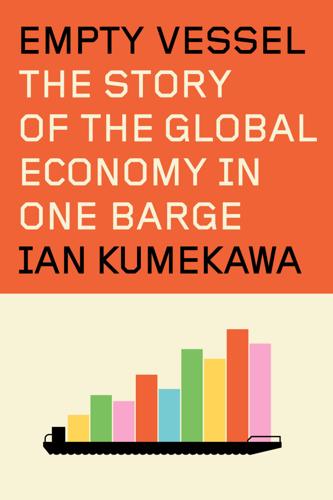
Empty Vessel: The Story of the Global Economy in One Barge
by
Ian Kumekawa
Published 6 May 2025
See also Vessel Treacy, Daniel, 159–60 Tubman, William, 91 twenty-foot equivalent units (TEUs), 36 Two Bridges Urban Renewal Area, 117 Type 1, car. See Volkswagen U ULURP. See Uniform Land Use Review Procedure UNCLOS. See UN Convention on the Law of the Sea Uni-Marine, 177, 182 Uniform Land Use Review Procedure (ULURP), 126 United Fruit Company, 89–90 United Nations Convention on the Continental Shelf, 40 United Nations Convention on the Law of the Sea (UNCLOS), 197, 263n24 United States, 11–12, 48, 93, 146, 164–65, 197, 235, 262n1. See also New York City abstraction in, 178–79 avoiding paying taxes in, 20–21 and British prison policy, 150–53 Coast Guard in, 143 flagged ships, 263n35 and flags of convenience, 99 and foreign ship registration, 88–90 importing prison barge from, 149–50 importing prison from, 150–51 and La Follette Seaman’s Act, 88 Liberian registry, 90–92 military spending, 69–70 monetary policy, 62–63 offshoring prisoners, 136–41, 157, 159, 162 oil field supply vessels in, 22–23 and open registry of Liberia, 90–92 and Pacific Maritime (Asia) Ltd. v.
…
The continental shelf, in turn, was defined geologically, by depth: it was the part of the ocean floor abutting a coastline less than two hundred meters below the surface. That changed in 1982. Instead of defining the continental shelf (and thereby national sovereignty) by ocean depth, the 1982 UN Convention on the Law of the Sea (UNCLOS) redefined it as the part of the seafloor that lay two hundred miles from the coast, regardless of how far beneath the waves the floor lay. A map showing the existence of oil and gas wells in Nigeria. When the definition of the continental shelf was expanded to cover sea depths greater than two hundred meters, huge new oil and gas deposits fell under Nigerian control.
…
On the Muscat Dhows Case, see Fahad Ahmad Bishara, “ ‘No Country but the Ocean’: Reading International Law from the Deck of an Indian Ocean Dhow, ca. 1900,” Comparative Studies in Society and History 60, no. 2 (2018), 338–66. The notion that ships had a nationality, granted by states through registration, was codified in Article 5(1) of the Geneva Convention on the High Seas in 1958. It was reaffirmed in the UN Convention on the Law of the Sea. See Ademun-Odeke, “An Examination of Bareboat Charter Registries and Flag of Convenience Registries in International Law,” Ocean Development and International Law 36, no. 4 (2005), 339–62. See also Davies, The Decline of the British Merchant Fleet, chapter 3. BACK TO NOTE REFERENCE 24 Bishara, “ ‘No Country but the Ocean.’ ” BACK TO NOTE REFERENCE 25 S.
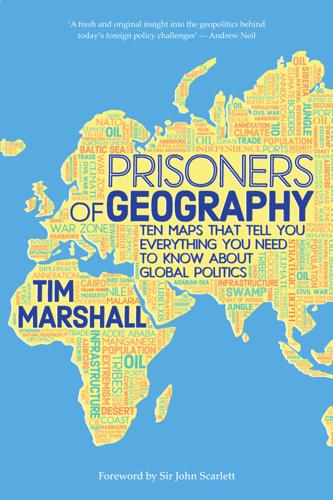
Prisoners of Geography: Ten Maps That Explain Everything About the World (Politics of Place)
by
Tim Marshall
Published 10 Oct 2016
However, the financial and strategic gains to be made mean that the big players will try to stake a claim to the territories and begin drilling, and that the potential environmental consequences are unlikely to stop them. The claims to sovereignty are not based on the flags of the early explorers but on the United Nations Convention on the Law of the Sea (UNCLOS). This affirms that a signatory to the convention has exclusive economic rights from its shore to a limit of two hundred nautical miles (unless this conflicts with another country’s limits), and can declare it an exclusive economic zone (EEZ). The oil and gas in the zone are therefore considered to belong to the state.
…
See also Islamic State/ISIS civil war, 5 and Russia, 22–23, 35 Taiwan/Republic of China (ROC), 36–37, 38–39, 43, 54, 55, 56–57, 58, 82, 208, 229 Tajikistan, 4–5, 8–9, 20, 36–37, 46, 49–50, 51 Takeshima/Dokdo Islands, 193, 206 Taliban, 4–5, 181–88 Tamil Nadu, 172 Tanzania, 109, 112, 114, 119, 120, 127, 130, 131 Tel Aviv, 153, 156 terrorism, 28, 106, 179, 182–83, 186, 188 Texas, 62–63, 67, 70–71, 222 Thailand, 36–37, 53, 55, 78–79, 168–69, 191 Thar Desert, 168–69, 180 Theroux, Paul, 48 Thule, 240–41, 243 Tiananmen Square massacre (1989), 44 Tibet, 7, 36–37, 41, 43–44, 46–50, 51, 178, 179, 188–90 Tibetan Plateau, 36–37, 40, 47 Tierra del Fuego, 215, 218 Tigris River, 133, 135, 139 Tikrit, 139, 141, 148, 150 Transistria, 29, 30 Transjordan, 142 Treaty of Tordesillas (1494), 219–20 Triple Entente (1907), 99–100, 136 Tripolitania, 116–17 Truman, Harry, 199 Turkey, 8–9, 29, 32, 86–87, 93, 133, 141, 145–46, 157, 159, 161–64 control of Bosporus, 22, 23, 163–64 and Iran, 163 and Russia, 32–33, 80 water supplies, 261 Turkmenistan, 8–9, 20, 133, 158 Tutsi, 119 Twain, Mark, 64 Uganda, 109, 112, 119, 120, 126–27, 131 Uighur people, 50–51 Ukraine, 1, 6, 8–9, 14–16, 20, 21–22, 23–27, 29, 29, 30, 33, 45, 77, 86–87, 91, 96, 102–3, 107 Umayyid Caliphate, 139, 173 UNASUR, 234 United Arab Emirates (UAE), 82–83, 133, 148 United Kingdom (UK), 86–87, 96–97, 103–5 in Afghanistan, 184–85 and China, 43, 44 colonial period, 43, 44, 66–67 and European Union (EU), 100–101, 103, 104–5 Falkland Islands/Las Malvinas, 234, 237–38 and France, 75–76 GIUK (Greenland/Iceland/UK) gap, 23, 86–87, 104, 252 and Iceland, 256 immigrants, 105–6 in India/Pakistan, 172, 173, 178 in the Middle East, 136–37, 141–42, 152–53 naval capacity, 75, 78, 104 Triple Entente (1907), 99–100, 136 and United States, 66–67, 75, 78, 238 United Nations (UN) Convention on the Law of the Sea (UNCLOS), 249, 254 Human Development Index, 119, 120 and Korea, 200 Security Council, 128, 131 United States, 62–63, 64–85. See also names of specific states and Afghanistan, 4–5 and Africa, 84 and Arctic/Arctic Circle, 243, 249, 253–54 and Canada, 62–63, 65, 66 and China, 38–39, 78–83 Cold War, 81, 94, 107, 118, 198–200, 205, 221, 235, 251–53 colonial period, 66–70 and Cuba, 72–73, 195 drones, 124–25, 148–49, 183, 186–87 and drugs, 224–25 energy resources, 33, 82, 84 geography in dictating foreign policy, 7 and Germany, 75 Hispanic population, 71, 222 and India, 191–92 and Iran, 82–83 and Iraq, 84 and Israel, 83 and Japan, 74, 75, 78–79, 81, 200, 208–13 and Korea, 79–80, 194, 198–200 languages, 71, 80, 89, 222 laser technology, 262–63 and Latin America, 83, 226–27, 229–30, 231, 235 and Mexico, 62–63, 66, 70–71, 222–23 Native American nations, 66, 67, 69, 71–72 naval capacity, 38–39, 53–54, 72–74, 75, 78, 79, 82–83, 160 prospects for, 64, 84–85 and Russia, 77–78 September 11, 2001, terrorist attacks, 28, 182–83, 186, 188 space exploration, 262 and Spain, 67, 69–73 strategic depth, 6, 62–63, 64–73 and United Kingdom, 66–67, 75, 78, 238 U.S.
…
Grydehøj, Anne, Adam Grydehøj, and Maria Akrén. “The Globalization of the Arctic: Negotiating Sovereignty and Building Communities in Svalbard, Norway.” Island Studies Journal 7, no. 1 (2012), 99–119. United Nations Convention of Law of the Sea, Part V: Exclusive Economic Zone, UNCLOS Treaty. http://www.un.org/depts/los/convention_agreements/texts/unclos/part5.htm. Woods Hole Oceanographic Institution, The Arctic: Exploration Timeline, Polar Discovery, 2009. http://polardiscovery.whoi.edu/arctic/330.html. INDEX A note about the index: The pages referenced in this index refer to the page numbers in the print edition.
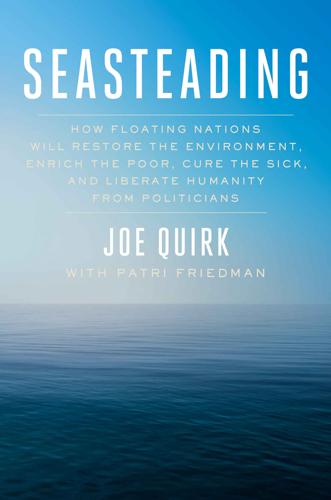
Seasteading: How Floating Nations Will Restore the Environment, Enrich the Poor, Cure the Sick, and Liberate Humanity From Politicians
by
Joe Quirk
and
Patri Friedman
Published 21 Mar 2017
Accessed July 13, 2016. www.shell.com/global/aboutshell/media/news-and-media-releases/2013/shell-floats-hull-for-worlds-largest-floating-facility.html. United Nations Convention on the Law of the Sea (UNCLOS): Part V—Exclusive Economic Zone (II). (n.d.). United Nations Convention on the Law of the Sea, 489-510. Online version: PREAMBLE TO THE UNITED NATIONS CONVENTION ON THE LAW OF THE SEA. (n.d.), accessed February 17, 2016, www.un.org/depts/los/convention_agreements/texts/unclos/part5.htm. 45 percent of the planet’s surface that is unclaimed by countries: Global Ocean Commission, (n.d.). “Governing the High Seas,” accessed February 17, 2016, www.globaloceancommission.org/the-global-ocean/the-global-governance-gap.
…
Beyond 200 nautical miles is the high seas, where ocean industries in cooperation with international governing bodies have developed a polycentric system of rules managing 45 percent of the planet’s surface that is unclaimed by countries. The United Nations Convention on the Law of the Sea (UNCLOS) is an international agreement signed by 167 countries—excluding the United States, which generally takes the position that most of the substantive portions of UNCLOS reflect long-standing customary international law. UNCLOS defines the limits of a nation’s jurisdiction at sea in three zones of decreasing sovereignty. The first 12 nautical miles are a nation’s “territorial waters,” where land-based governments have the same power they have on land.
…
When people love seasteads as much as they love cruise ships, permanent voluntary societies will evolve from the temporary voluntary societies we have now. The cruise ship industry has already profitably pioneered the market niche of mobile crafts with de facto legal autonomy that compel land nations to compete to please them. Q: Isn’t the ocean an untamed wilderness? Landlubbers don’t hear much about UNCLOS, the United Nations Convention on the Law of the Sea. This is evidence of how well it functions. Myriad ocean industries in concert with maritime lawyers have already civilized the seas, fostering global cooperation among diverse cultures. We wish we could say that for some old land cities. The untamed wildernesses today are lawless lands, not oceans.
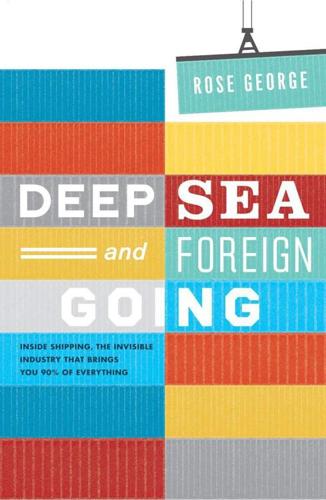
Deep Sea and Foreign Going
by
Rose George
Published 4 Sep 2013
Seafaring can be a good life. And it can go wrong with the speed of a wave. On paper the seas are tightly controlled. The Dutch scholar Grotius’s 1609 concept of mare liberum still mostly holds: a free sea that belongs to no state but in which each state has some rights. The United Nations Convention on the Law of the Sea (UNCLOS) is known as the umbrella convention with reason: its 320 articles, excluding annexes, aim to create ‘a legal order for the seas and oceans which will facilitate international communication, and will promote the peaceful uses of the seas and oceans, the equitable and efficient utilization of their resources, the conservation of their living resources, and the study, protection and preservation of the marine environment’.
…
Other interested parties were also trying to get answers, from the FCO to Nautilus International, the UK seafarers’ union of which Captain Milloy had been a member. Still nothing appeared, because there was nothing to oblige Panama to do anything. The procedure that should follow a marine casualty is clearly laid out by the United Nations Convention on the Law of the Sea (UNCLOS), the International Convention for the Safety of Life at Sea (SOLAS) and the International Convention for the Prevention of Pollution from Ships (MARPOL), all the major instruments of international maritime law. All specify that flag states should carry out prompt investigations into any accident involving loss of life.
…
. $1.3 billion a year, Bloomberg Businessweek, editorial, ‘How the Jones Act blocks natural disaster relief’, 1 January 2013. – US fleet has declined by 82 per cent since 1951 ‘Comparison of US and foreign-flag operating costs’, US Department of Transportation, Maritime Administration, September 2011, p.26. 9 A legal order for the seas and oceans United Nations Convention on the Law of the Sea (UNCLOS), Preamble, p.25. 10 Consensual but rough Baroness Jane Campbell has called for an inquiry into Akhona’s death on the grounds that Safmarine Kariba was a UK-flagged ship. As she said in the House of Lords in 2011, ‘For women, living and working on board ship requires great dedication, tolerance and self-belief.
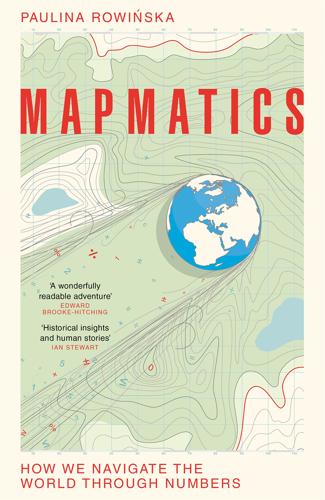
Mapmatics: How We Navigate the World Through Numbers
by
Paulina Rowinska
Published 5 Jun 2024
The agreement from Geneva sparked a decades-long discussion that resulted in the United Nations Convention on the Law of the Sea (UNCLOS), as of today ratified by 168 parties. The hundreds of articles specified who the oceans belong to and from what baselines coastal nations can measure zones of varying degrees of the coastal country’s jurisdiction: the territorial sea,* the contiguous zone,* and the exclusive economic zone,* all illustrated in Figure 3.3. Again, these territories should be established from the coastline, or straight lines when it’s impractical. Unfortunately, UNCLOS failed to specify these special cases precisely enough, leading to coastal nations abusing the permissive law.
…
Federick ref1, ref2 Robinson, Arthur H. ref1, ref2 Robinson, Julia ref1 Rolodex card files ref1n Roman Empire ref1 Rossmo, Kim ref1, ref2 Rossmo’s formula ref1 route planning see travelling salesperson problem (TSP) Royal Danish Geodetic Institute ref1 Russia’s Alaskan territory ref1 Rutherfurd, John ref1 San Francisco transit map ref1 San Juan County, Utah, USA ref1 Sardinia ref1 satellite radar altimeters ref1 scale Baltimore phenomenon ref1 and borders ref1 changing ref1 defining ref1 and details included ref1, ref2, ref3 and measuring lines see coastline paradox; lines, measuring representation ref1 Schmidt, Christopher ref1 Schmitt, Otto ref1 school atlases ref1, ref2 school districts ref1 Science ref1, ref2, ref3, ref4 Scott, Natacha ref1 Seabed 2030 initiative ref1, ref2 Seaman, Valentine ref1 Search and Rescue Optimal Planning System (SAROPS) ref1 search effectiveness ref1 secants ref1, ref2 segregation ref1 Segregation Contribution Index (SCI) ref1 Seismic Experiment for Interior Structure (SEIS) ref1 seismology and seismic waves causes ref1 and Earth’s composition ref1, ref2 epicentre, determining ref1, ref2 Koelemeijer’s work ref1 Lehmann’s work ref1, ref2 on Mars ref1 measuring ref1, ref2, ref3 nuclear explosions ref1 P waves and S waves ref1, ref2, ref3, ref4, ref5 revealing Earth’s inner structure ref1, ref2, ref3 seismic tomography ref1, ref2 Snell’s Law ref1, ref2 seismometers/seismographs ref1, ref2, ref3, ref4, ref5, ref6 seismoscopes ref1 self-similarity ref1, ref2, ref3 sexism ref1n, ref2, ref3, ref4 sextants ref1 shape, Earth’s ref1, ref2, ref3n, ref4, ref5, ref6n, ref7 shortest distance between two points ref1, ref2, ref3, ref4, ref5, ref6, ref7, ref8; see also travelling salesperson problem (TSP) Sicily ref1 Simmons Jr., Bobby Ray (B.o.B.) ref1 simultaneous localization and mapping (SLAM) ref1 sines ref1n SIR models ref1, ref2 Smith, Alvy Ray ref1 Snell, Willebrord van Royen ref1, ref2n Snell’s Law ref1n, ref2, ref3, ref4 Snow, John ref1, ref2, ref3 solstices ref1, ref2 ‘Solutio problematis ad geometriam situs pertinentis’ (Euler) ref1 sonar ref1, ref2 sound waves ref1, ref2 soundings ref1 Southwark & Vauxhall (S&V) water company ref1, ref2, ref3 Soviet Union, projections of the ref1 Sowers, Derek ref1 Spiers, Hugo ref1 Stähler, Simon ref1 Star Trek II: The Wrath of Khan (Paramount) ref1 Statistics of Deadly Quarrels (Richardson) ref1 Steinhaus, Hugo ref1, ref2 Stephanopoulos, Nicholas ref1, ref2, ref3, ref4 Sterling, Colleen ref1 Stoa, Ryan ref1, ref2 Stone, Lawrence ref1 subjective probabilities ref1 sum of secants ref1, ref2, ref3 Switzerland school districts ref1 Syene, Egypt ref1, ref2 Sylvester, James Joseph ref1n ‘synchronoptic world history’ timeline ref1 tangents ref1n territorial seas ref1n, ref2 Tharp, Marie ref1, ref2 Theorema Egregium (Gauss) ref1 three-dimensional ‘map’ ref1 toises ref1 Tolman, Edward C. ref1 tomography ref1, ref2 topography ref1n topological maps Catawba Deerskin Map ref1, ref2 connections ref1, ref2, ref3, ref4 distances, distortion of ref1, ref2 distortions ref1, ref2, ref3, ref4 etymology ref1 homeomorphisms ref1, ref2 London Tube map ref1, ref2, ref3, ref4, ref5 Peutinger Map ref1 Toscanelli, Paolo dal Pozzo ref1 Toy Story 2 (Pixar) ref1 Traveling Salesman, The ref1 travelling salesperson problem (TSP) ant colony optimization algorithm ref1 heuristics ref1 Meals on Wheels routes ref1, ref2 Menger’s ‘messenger problem’ ref1 nearest neighbour algorithm ref1, ref2 RAND Corporation’s challenge ref1 On-Road Integrated Optimization and Navigation (ORION) (UPS) ref1 Traveling Salesman, The ref1 UPS example ref1 Treaty of Saint Petersburg (1825) ref1, ref2 triangle inequality ref1, ref2, ref3 triangles, spherical ref1, ref2, ref3, ref4, ref5 triangulation ref1, ref2, ref3, ref4, ref5, ref6, ref7 trigonometry ref1, ref2, ref3, ref4, ref5, ref6 trilateration ref1 Tropic of Cancer ref1n Tropic of Capricorn ref1n Tuchinsky, Philip M. ref1, ref2 Twain, Mark ref1n typhoid fever ref1 Tyson, Neil deGrasse ref1 UNICEF ref1 United Kingdom coastline ref1, ref2 gerrymandering in ref1, ref2 and Norway Fisheries Case ref1 United Nations Convention on the Law of the Sea (UNCLOS) ref1, ref2 United Nations Geneva Conference on the Law of the Sea ref1 United Nations Sustainable Development Goal 14 ref1 United States Canada border ref1, ref2 coastline measurements ref1 exclusive economic zone ref1 gerrymandering in the ref1, ref2, ref3, ref4, ref5, ref6 school segregation ref1 state borders ref1, ref2 University of Arizona worldview study ref1 University of Princeton MCMC study ref1 UPS (United Parcel Service) ref1, ref2 Utah Navajos ref1 Van der Heyden, Gaspar ref1 Vancouver Police Department, Canada ref1 Velarde, Lorie ref1 Vienna Mathematics Colloquium ref1 Vistula River, Poland ref1 Vol Libre (Carpenter) ref1 volcanoes ref1, ref2 Voronoi diagrams ref1, ref2, ref3 Voronoy, Georgy Feodosevich ref1 voting districts ref1, ref2, ref3; see also gerrymandering Voting Rights Act (1965) (USA) ref1, ref2 Warren, William H. ref1 wars ref1, ref2, ref3, ref4, ref5, ref6, ref7n, ref8 Washington Daily News, The ref1 Waymo company ref1, ref2 Web Mercator projection ref1 wedding planning ref1, ref2 Wegener, Alfred ref1 Whitehead, Henry ref1 Wilson, Robin ref1 workhouses ref1n Wright, Edward ref1, ref2, ref3, ref4 Picture Acknowledgements Here: ‘Geodesics on the Earth: Demonstrating How Geodesics Appear to Curve on a 2D Representation of 3D Space,’ Academo, https://academo.org/demos/geodesics, accessed 10 January 2024.
…
coastal nations should own the most adjacent waters: Andrew Blom, ‘Hugo Grotius (1583–1645)’, Internet Encyclopedia of Philosophy, n.d., accessed 23 November 2021, https://iep.utm.edu/grotius/. who these resources belong to: Ryan B. Stoa, ‘The Coastline Paradox’, Rutgers University Law Review 72, no. 2 (2019): 351–400, https://rutgerslawreview.com/wp-content/uploads/2020/11/72_Rutgers_Univ_L_Rev_0351_Stoa.pdf. straight lines when it’s impractical: ‘The United Nations Convention on the Law of the Sea (A Historical Perspective)’, Oceans & Law of the Sea, United Nations, originally prepared 1998, accessed 21 August 2021, https://www.un.org/depts/los/convention_agreements/convention_historical_perspective.htm. which started a fishing war between the two countries: Anglo-Norwegian Fisheries, UK v.
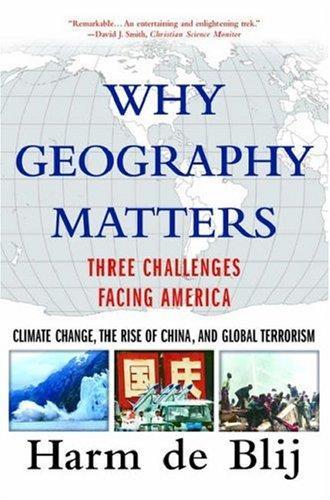
Why geography matters: three challenges facing America : climate change, the rise of China, and global terrorism
by
Harm J. De Blij
Published 15 Nov 2007
Over the years, various attempts to settle the issue have failed, despite generous offers by the Japanese to fund development projects in the Russian Far East, help develop ports and infrastructure, and initiate joint ventures. About 50,000 Russians have settled there, and when the United Nations Convention on the Law of the Sea (UNCLOS) took effect, the islands acquired not only a 12-mile territorial sea but also a 200-mile maritime exclusive economic zone (EEZ), enhancing their value. As to the Japanese, for all their bluster they cannot afford to play hardball with a Russia whose energy resources they badly need.
…
The end of the Cold War led to the end of many of those dictatorships, but the new threat of Islamic terrorism, in part the direct result of an earlier foreign-policy error in Afghanistan, created a new set of circumstances only the outlines of which are visible today. Although there is much concern about the supposedly novel unilateralism in American policy today, this is nothing new. The United States may not have signed on to the Kyoto protocols or other recent treaties, but neither did it ratify the much older UN Convention on the Law of the Sea (UNCLOS) or a number of other international agreements with pre-2000 datelines. What is new, however, is worldwide American interven-tionism in response to the 2001 terrorist attacks in New York and Washington, a byproduct of which is an inconsistent campaign to install or advocate democracy in countries ruled by authoritarian regimes (inconsistent because it exempts stronger regimes such as China as well as others whose resources are crucial to the American economy, such as Saudi Arabia).
…
Certainly the United States could and should do better; in terms of per capita aid to poorer countries, for example, the American government ranks near the lowest among the rich countries (but private donations are among the most generous). The United States' decision not to participate in the Kyoto, UNCLOS, International Criminal Court, and other current muhinational initiatives may be justifiable in the context of their particular impact on this superpower, but to the world it appears to place national interests before global concerns. Inconsistencies in the pursuit of doctrines regarding freedom and democracy create worldwide political uncertainties on which America's adversaries are capitalizing.
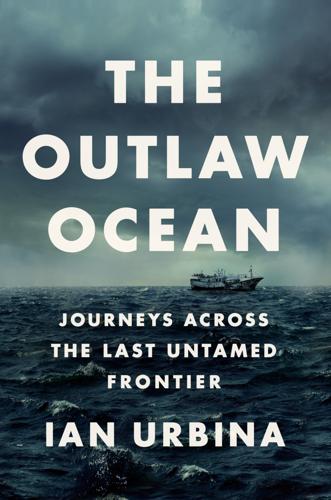
The Outlaw Ocean: Journeys Across the Last Untamed Frontier
by
Ian Urbina
Published 19 Aug 2019
CHAPTER 9 THE NEXT FRONTIER Arguably the least policed: Oversight of the ocean subsurface is fractured, and rules vary by depth. Although the water column and the seabed below two hundred meters are interconnected, they are managed on a sector-by-sector basis. The 1982 United Nations Convention on the Law of the Sea (UNCLOS) is an umbrella framework for international ocean management. Multilateral regional fishery management organizations regulate commercial fisheries harvests; the International Maritime Organization manages shipping; and the International Seabed Authority regulates mining of the international seabed.
…
Several weeks earlier, the ship had received written permission from Brazil’s local and federal environmental authorities to dive to the reef using the submarine. Such permission was not needed in Brazil’s exclusive economic zone, or EEZ, the offshore region where a coastal nation has sole control under the UN Convention on the Law of the Sea. But Greenpeace had asked (and received) permission anyway as an extra precaution to protect the Brazilian staff and scientists on board who might face dire consequences if the government felt antagonized. After a day of sailing, though, the captain of our ship received a blunt message from the Brazilian Navy: if we put the submarine in the water, we would be arrested, even though no permission was required.
…
In the case of most poor countries, this cost would be prohibitive and the equipment would have to be donated or lent by wealthier governments. Situated in the western Pacific: “Monitoring, Control, and Surveillance,” Republic of Palau Exclusive Economic Zone. But Palau’s islands: Part V Exclusive Economic Zone, UN Convention on the Law of the Sea. This means that while Palau: Richard A. Lovett, “Huge Garbage Patch Found in Atlantic Too,” National Geographic, March 2, 2010; “The World Factbook: Palau,” Central Intelligence Agency Library, Oct. 17, 2018. These are rich fishing grounds: “Palau Burns Shark Fins to Send Message to Poachers,” Agence France-Presse, May 7, 2003; Christopher Pala, “No-Fishing Zones in Tropics Yield Fast Payoffs for Reefs,” New York Times, April 17, 2007; John Heilprin, “Swimming Against the Tide: Palau Creates World’s First Shark Sanctuary,” Courier Mail Australia, Sept. 29, 2009; Renee Schoof, “Palau and Honduras: World Should Ban Shark Fishing,” McClatchy DC Bureau, Sept. 22, 2010; Bernadette Carreon, “Sharks Find Sanctuary in Tiny Palau,” Agence France-Presse, Jan. 3, 2011; “Sea Shepherd Welcomes Palau Surveillance Deal with Japan,” Radio New Zealand News, May 20, 2011; Ilaitia Turagabeci, “Fine and Ban,” Fiji Times, Feb. 20, 2012; “Chinese Fisherman Killed in Ocean Confrontation with Palau Police, Search On for 3 Missing,” Associated Press, April 3, 2012; XiaoJun Zhang, “Compensation Demanded for Slain Chinese Fisherman in Palau,” Xinhua News Agency, April 16, 2012; “Palau: China Spying on Us,” Papua New Guinea Post Courier, April 25, 2012; “Japan to Help Fight Poaching in South Pacific,” Nikkei Report, Dec. 30, 2012; “Pacific Island Nations Band Together as Overfishing Takes Toll on Global Tuna Supply,” PACNEWS, Jan. 24, 2013; “Pacific’s Palau Mulls Drone Patrols to Monitor Waters,” Agence France-Presse, Oct. 4, 2013; Edith M.
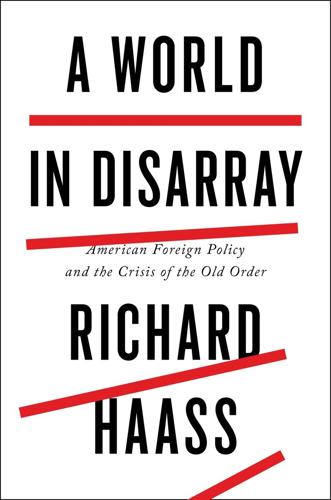
A World in Disarray: American Foreign Policy and the Crisis of the Old Order
by
Richard Haass
Published 10 Jan 2017
: Ten Essential Reforms Before the Next Pandemic. The Report of the Harvard-LSHTM Independent Panel on the Global Response to Ebola,” Lancet 386, no. 10009 (November 22, 2015), http://dx.doi.org/10.1016/S0140-6736(15)00946-0. 11. “United Nations Convention on the Law of the Sea,” December 10, 1982, United Nations, www.un.org/depts/los/convention_agreements/texts/unclos/unclos_e.pdf. The United States signed but never ratified the Law of the Sea Treaty, which established rules for territorial seas, navigational rights, economic zones, and resource exploitation. U.S. strategic interests would be well served by ratification and full participation in arrangements relating to the treaty, but the Senate has refused to do so, alleging (unconvincingly) that the treaty would infringe U.S. sovereignty.
…
U.S. strategic interests would be well served by ratification and full participation in arrangements relating to the treaty, but the Senate has refused to do so, alleging (unconvincingly) that the treaty would infringe U.S. sovereignty. See Stewart M. Patrick, “Everyone Agrees: Ratify the Law of the Sea,” The Internationalist (blog), CFR.org, June 8, 2012, http://blogs.cfr.org/patrick/2012/06/08/everyone-agrees-ratify-the-law-of-the-sea/; and Thomas Wright, “Outlaw of the Sea: The Senate Republicans’ UNCLOS Blunder,” ForeignAffairs.com, August 7, 2012, www.foreignaffairs.com/articles/oceans/2012-08-07/outlaw-sea. 12. It is for this reason that China’s rejection of the ruling administered by the Permanent Court of Arbitration on the South China Sea in July 2016 was to be expected. See “Press Release: The South China Sea Arbitration,” The Hague, July 12, 2016, Permanent Court of Arbitration, https://assets.documentcloud.org/documents/2990864/Press-Release-on-South-China-Sea-Decision.pdf; and “Full Text of Statement of China’s Foreign Ministry on Award of South China Sea Arbitration Initiated by Philippines,” Xinhua, July 12, 2016, http://news.xinhuanet.com/english/2016-07/12/c_135507744.htm. 11.
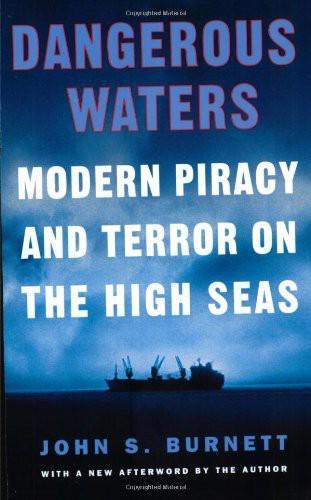
Dangerous Waters: Modern Piracy and Terror on the High Seas
by
John S. Burnett
Published 1 Jan 2002
When piracy takes place in the waters of one nation—no matter the national origin of ship, crew, or cargo—that country wants to call it a robbery at sea and they expect to handle it. This was and still is part of the problem: Many piratical events today under the law are territorial matters. The 1982 United Nations Convention on the Law of the Sea (UNCLOS) definition is very specific: Any illegal acts of violence or detention, or any act of depredation, committed for private ends by the crew or the passengers of a private ship or a private aircraft and directed: On the high seas, against another ship or aircraft, or against persons or property on board such a ship or aircraft, or against a ship, aircraft, persons or property in a place outside the jurisdiction of any State; any act of voluntary participation in the operation of a ship or of an aircraft with knowledge of facts making it a pirate ship or aircraft . . .
…
When police attempted to board, they were attacked by the desperate immigrants armed with parangs and axes. 35 These boats exchange cut timber, copra, and palm oil from Indonesia for cartons of soft drinks, live chickens, and kerosene in Malaysia, an age-old tradition of commerce between the two nations. 36 Article 105 of the United Nations Convention on the Law of the Sea (UNCLOS) allows the seizure of a pirate ship or aircraft: On the high seas, or in any other place outside the jurisdiction of any State, every State may seize a pirate ship or aircraft taken by piracy and under the control of pirates and arrest the persons and seize the property on board.
…
September 11, 2001, terrorist attacks Shamal Shaw, Graham Shell Shell Malaysia Trading She-tou (the Snakeheads) Shikishima Shipboard Procedures Operating Manual (Petroships) Ship hijackings Alondra Rainbow Anna Sierra Cheung Son Fu Tai Hualien No. 1 Inabukwa Ship hijackings, (continued) organized crime syndicates and Petchem Petro Ranger Selayang Ten-yu ShipLoc tracking device Singapore Singapore Bay Singapore Marine Police Singapore Straits Singh Slocum, Joshua Slutsk Socotra Somalia So San South China Sea Southern Boarding Ground Southern Red Sea Spain Special Air Service (SAS) Spotswood, Alexander Spratly Islands Sri Lanka Star Aquarius Staten Island Ferry Stevenson, Doug Stolt Nielsen Company Stolt Venture Stowaways Straits of Hormuz Stresa Suez Canal Suharto regime Suicide bombers Suli Sumarlin, Ade Sumatra Sunda Straits Surabaya, Indonesia Swain, Captain John SWAT teams Syria Taiwan Tamil guerrillas Tanjung Balai Tanker War Tanzania Tarapore, Homi Ten-yu Terra-Marine Agencies Terrorism (see also Piracy) Achille Lauro seizure by Basque separatists container ships and manning policies and Ocean Silver attack relationship to piracy river traffic and September 11, 2001, attacks suicide bombers and training and USS Cole attack Thailand Than Maung Myint, Captain Theresa Tides Tirta Niaga IV Titanic Titanic (movie) Traffic Separation Scheme Travnik, Viktor Twillinger Two-hull system Udoye, Vincent Chibueze U Ne Win Unicorn United Arab Emirates United Kingdom Atomic Energy Authority Constabulary (UKAEAC) United Nations Convention on the Law of the Sea (UNCLOS) United Philippines Lines Unmanned Machinery Space system Uranium U.S. Coast Guard U.S. Oil Pollution Act of 1990 U.S. Seventh Fleet U.S. Sixth Fleet U.S. Special Forces U.S. State Department USNS Niagara Falls USS Cole Val de Loire Valiant Carrier attack on Vessel Particulars Questionnaire Vessel Traffic Information Service VHF radio Vietnam Vietnamese boat people Vietnam War Vung Tau, Vietnam Wahhabism Walking the plank Warlords Warren, James Wasim Water ballast tanks Weapons of mass destruction (WMD) Weather Wellington, HQS Wellington Offshore, Ltd.
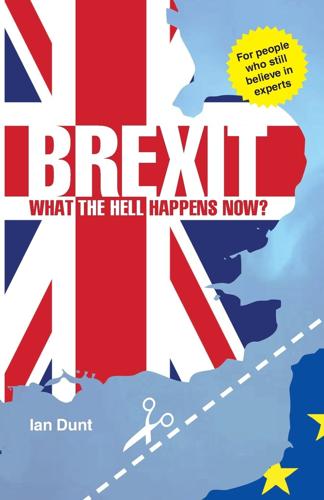
Brexit: What the Hell Happens Now?: The Facts About Britain's Bitter Divorce From Europe 2016
by
Ian Dunt
Published 11 Apr 2017
For more on the beef industry’s reliance on subsidies: (http://beefandlamb. ahdb.org.uk/wp/wp-content/uploads/2013/05/p_cp_inthebalance.pdf) In practical terms that means we control economic activity taking place up to 200 miles out to sea. The 200 miles rule is part of the UN Law of the Sea Convention (http://www.un.org/depts/los/convention_agreements/texts/unclos/unclos_e. pdf#page=37) This would not suit the British palate. UK vessels land around 400,000 tonnes of fish each year in the UK, alongside up to 300,000 tonnes abroad. Britain remains a net importer of fish, however, with net imports of around 220,000 tonnes in 2014, worth £1.2bn. (http://researchbriefings.files.parliament.uk/documents/SN02788/SN02788.pdf) This partly explains why the fishing industry was so stridently pro-Brexit during the campaign.
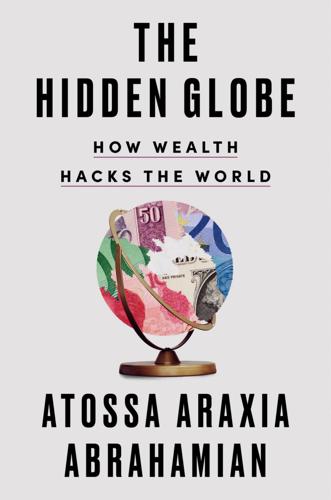
The Hidden Globe: How Wealth Hacks the World
by
Atossa Araxia Abrahamian
Published 7 Oct 2024
But there are no true vacuums in our world—and if there were, a ship could not sail in one. Sovereignty at sea moves like a current, contingent on political gravity, ideological winds, and social friction, which makes freedom of the seas a lot like all other freedoms: more free for some than it is for others. The United Nations Convention on the Law of the Sea, or UNCLOS, is a sprawling, complex set of treaties whose environmental, regulatory, and legal guidelines took more than a decade to negotiate. The convention was signed in 1982 and went into force in 1994; 169 countries have joined, though the United States has yet to sign on. It would be absurd to distill a convention that governs uses of two thirds of the world’s oceans and their resources into a mere sentence, but the essence of the treaty is that the world’s largest bodies of water can be categorized into different maritime zones.
…
The responsibility of ships to follow these rules falls on the flag state, which also determines labor, tort, and contract law on board, regardless of where the ship is located. This system of governance had been followed more or less informally: for centuries, ships were identified by their flags. But over the course of the twentieth century, the links between a vessel, its flag, its owner, its crew, and its country of origin were coming apart. Right before UNCLOS was signed, as many as 42 percent of the world’s fleet by gross tonnage was flagged to one of a dozen “flags of convenience” (FOCs); by 2019, the proportion was nearing three quarters. Vessels are supposed to maintain a “genuine link” to their flag state under international law, but this concept is vague too.
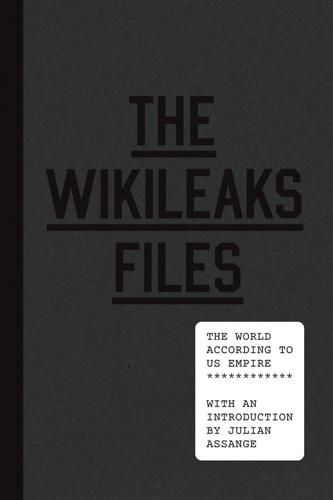
The WikiLeaks Files: The World According to US Empire
by
Wikileaks
Published 24 Aug 2015
To demonstrate its solidarity with ASEAN, Washington encouraged the establishment of a binding code of conduct in the disputed areas, in accordance with the 2002 Declaration on the Conduct of Parties in the South China Sea and the relevant provisions of international law, specifically the United Nations Convention on the Law of the Sea (UNCLOS). Although not a direct party to the UNCLOS, the US nevertheless maintains that in practice it observes it and encourages signatories, particularly China, to behave within the boundaries of international law and related treaty obligations. Washington’s critics, however, maintain that the US is using the maritime disputes as a pretext to isolate China, increase arms exports to allies, and justify as well as further expand its already significant military presence in the region.
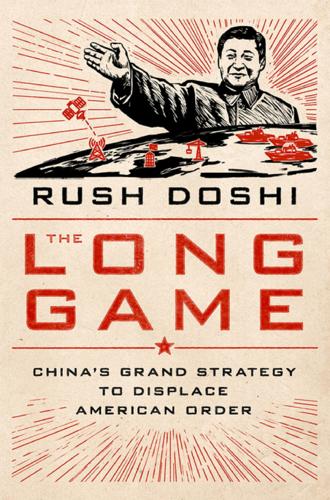
The Long Game: China's Grand Strategy to Displace American Order
by
Rush Doshi
Published 24 Jun 2021
See Gulf War; Soviet collapse; Tiananmen Square Massacre Trump, Donald, 2, 4, 43–44, 155–56, 262, 263, 266, 268, 269, 273–74, 280, 284–85, 332 Tsai, Wen-Hsuan, 34 Tsongas, Paul, 332 Turkey, 192–93, 201, 208–9, 228 Turkmenistan, 129 2035 Standards Plan, 290 Twomey, Christopher, 70–71 Type 055 Renhai destroyer, 199–200 Type 071 landing platform docks, 203 Type 071 LPD, 203 Type 075 landing helicopter docks, 203 Type 918 minelayers, 87–88 Udaloy class destroyers, 199 Uganda, 285–86 Ukraine, 192–93 UN Department of Economic and Social Affairs (DESA), 282–83 UN General Assembly, 229 unilateral accommodation, 303–4, 306 United Kingdom. See Britain and the United Kingdom United Nations (UN), 105, 165–66, 322 United Nations Convention on the Law of the Sea (UNCLOS), 125–26 United Nations Educational, Scientific and Cultural Organization (UNESCO), 273–74 Universal Credit Rating Group (UCRG), 256–57 Universal Postal Union, 273–74 UN Security Council, 132–33, 216–17, 294–95 Uruguay, 282–83, 322 Uruguay Round of trade agreements, 152 US Air Force, 68 US Congress, 138, 140, 148, 155, 321, 327, 328 US Department of Commerce, 328 US Department of Defense, 328 US Department of Justice, 320–21, 328 US Department of State, 328 US Naval War College, 207 US Navy, 4, 84, 86–87, 99, 302 U.S.
…
China’s institutional involvements demonstrated Beijing’s willingness to work multilaterally rather than bilaterally where it had an advantage and to let ASEAN be in the driver’s seat for Asian regionalism, thereby enhancing the credibility of its claims of benign intentions. By 2008, China had a total of forty-six institutionalized mechanisms with ASEAN, compared to America’s fifteen.135 China also made concrete political concessions. In 1995, it accepted that competing claims should be resolved through UNCLOS rather than by force.136 In 2002, China signed the “Declaration on the Conduct of Parties in the South China Sea” with ASEAN States: it acknowledged (rather than ignored) ASEAN claims; created precedents for multilateral solutions where China’s leverage would be weaker; and renounced violence to change the status quo (which it had previously used against Vietnam).
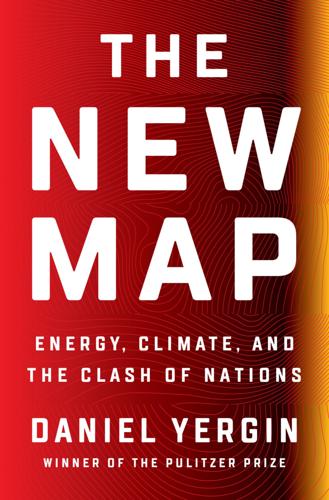
The New Map: Energy, Climate, and the Clash of Nations
by
Daniel Yergin
Published 14 Sep 2020
LNG, 39–40 withdrawal from Paris Agreement, 382 Tunisia, 236 Turkey and Eastern Mediterranean petroleum resources, 257 and global order after First World War, 200–202 and Iraqi oil infrastructure, 232 and ISIS, 269 and Khashoggi affair, 305 and Qatar and Russian gas pipelines, 85, 104 and Saudi Arabia, 306–7 and Syrian civil war, 245 Turkmenistan, 120, 179–80 Turkomans, 202 Tusk, Donald, 102 Twitter, 237, 382 Uber, 358–65, 367, 369, 372 Uchiyamada, Takeshi, 338 Uighurs, 180 Ukraine and collapse of Soviet Union, 73–74 and current geopolitical challenges, 426 and East-West tensions, 90–93 and gas supplies to Europe, 110 and Gazprom, 80–82 and politics of U.S. shale production, 55 and Russian annexation of Crimea, 94–98 and Russian gas exports, 102, 104–5, 107–8, 110, 112, 113 and Russian geopolitical strategy, 78–80 and Russian political isolation, 246 United Arab Emirates (UAE) and Arab Spring protests, 241 and Iranian nuclear ambitions, 225, 228 and price war among petroleum producers, 313 and Saudi Arabia, 300–302, 306 and Yemen conflict, 251–52 United Arab Republic, 243 United Kingdom. See Britain and the United Kingdom United Nations, 148, 203, 226, 239, 251–52, 284, 379–80 United Nations Convention on the Law of the Sea (UNCLOS), 144–46, 152 United Nations Security Council, 223 United States abundance of natural gas, 420 and China, 150, 165–76, 188–89, 425–26 and first oil imports from the Middle East, 52 as gas exporter, 31–40 and green deal proposals, 321–23, 391–93 and Iran, 209, 220–28 and Iraq War, 217 and ISIS, 267, 270–71 and Latin American energy markets, 41–45 manufacturing renaissance, 25–28, 29–30 and mujahedeen fighters in Afghanistan, 297 and Nasser’s Arab nationalism, 203, 204 oil and gas production leadership, xiv, 114 and Persian Gulf conflicts, 210–19 and pipeline battles, 46–48, 49–51, 50 pivot to Asia, 181 and price war among petroleum producers, 314, 316 and push for renewable energy sources, 398–99 and Russian geopolitical strategy, 78–80, 95–96, 114, 115–16, 118, 122 and Russian interests in Central Asia, 124–25 and Saudi Arabia, 303, 308 Security Council, 223 and shale gas and oil production, xiii–xiv, 3–6, 9–10, 14–17, 24, 52–57, 58–66 and Syrian civil war, 246 terrorist attacks against, 208, 216, 221, 222, 226, 228, 237, 249, 264–65 as top oil producer, 65 and Ukrainian independence, 80 and varied approaches to climate change, 413–14 and Yemen conflict, 249, 251 See also specific U.S. institutions U.S.
…
More recently, a spokesperson for the Chinese Ministry of Foreign Affairs declared, “China enjoys indisputable sovereignty over the South China Sea” as well as the islands, and Chinese legal specialists claim that it has “authority over the South China Sea.” Many nations make their marine claims on the basis of the 1982 United Nations Convention on the Law of the Sea, which had involved negotiations with more than 150 countries over fourteen years. China’s assertion that the 9-Dash Line is a national boundary, which encompasses the sea itself, rests not on this convention, but rather, Beijing says, on the “historic claim” with “a foundation in international law, including the customary law of discovery, occupation, and historic title.”
…
In 2012, 123 miles off the coast of the Philippines, China took control of the Scarborough Shoal (named for an unfortunate British tea clipper shipwrecked there in 1784) and closed it off to Philippine ships. The Philippines hardly had any military of its own with which to respond. So it used the only weapon available to it—the UN Convention on the Law of the Sea. It brought a case challenging the 9-Dash Line to an international tribunal established in The Hague. Vietnam associated itself with the claim. In 2016, the tribunal delivered its verdict—wholly in the Philippines’ favor. It rejected the legal and historic claims of the 9-Dash Line.
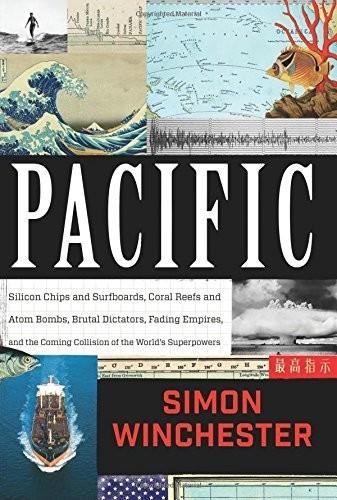
Pacific: Silicon Chips and Surfboards, Coral Reefs and Atom Bombs, Brutal Dictators, Fading Empires, and the Coming Collision of the World's Superpowers
by
Simon Winchester
Published 27 Oct 2015
The Nine-Dash Line, drawn by China as a series of penciled lines on a postwar map of the South China Sea, showed the area of ocean still claimed by the Chinese as their own. The People’s Liberation Army (PLA) Navy insists it can act with impunity within the line; others, the United States included, dispute the claim, hotly.* [UNCLOS and CIA.] And they say a great deal. There are scores of islands within the line, most notably the Spratly Islands down south, close to the Philippines, and the Paracel Islands up north, near Hainan. The governments of Malaysia, the Philippines, Brunei, Vietnam, and even Taiwan all insist they have historic claim to the Spratlys.
…
See also cyclones; hurricanes; typhoons Strait of Magellan, 18, 19, 23 Strauss, Lewis, 75–77 Subic Bay Naval Base, 381–86, 384, 389, 421 submarines, Chinese, 386–88_, 387, 404–5 subsea dandelions, 324 Sulawesi, 301 sulfur, 322–25 Sumatra, tsunami of 2004, 379 Sumitomo Metal, 11 Sun Tzu, 377, 400 surf, defined, 124n surfboards, 127–29, 141–47 surfing, 27, 121–49 contests, 140 Hawaiian social hierarchies and, 128–30 Surf Life Saving Association, 140 “Surf Riders Have Drawn Attention” (article), 136 swadeshi concept, 178 Sweden, 184–85 Sweet Caporal, 134n Switzerland, 184–87 Sydney, 5, 234, 302 Harbour Bridge, 282 Opera House, 281–92, 286 Sydney Symphony, 283, 290–91 Sylvania company, 113 Syrian refugees, 301 Tacloban, Philippines, 239–41 Tahiti, 6, 9, 27, 218, 255, 431 voyage from Hawaii to, 435–39, 439n Taiping Island, 401n Taiwan, 113, 117, 119, 196–97, 352n, 393–94, 394, 401n, 409 Taiwan Strait, 422 Takanaka, Shigetaka, 11 Takekoshi, Yosaburo, 10 Taliban, 301 Tambora eruption, 379n Tamil, 301 tape players, 111 tape recorders, 92–96 Tarawa, Kiribati, 18–19 Tennyson, Alfred, Lord, 305 Tet Offensive, 209 THAAD missile systems, 422 Thailand, 202n, 206 Tharp, Marie, 310–13, 316–17 Thatcher, Margaret, 222–24 thermocline, 262 thermohaline circulation, 247 Third Island Chain, 391, 392n, 412–14 Thirty-Eighth Parallel, 154–56, 154, 175 Thompson, Howard, 123 Thompson, Nainoa, 439 Thorne, Bazil, 289–90 Thorne, Graeme, 290 Tiananmen Square, 224–25, 228, 411n, 424 Time, 169 Tinian, 419 Titanic (liner), 308 Toho University, 359 Tokyo, 5, 25, 114, 116, 423 Tokyo Bay, 114, 116–18, 160, 386 Tokyo Telecommunications Engineering Company (Totsuko), 84, 89–91, 95–96, 98–100, 103 renamed Sony, 106 Tomahawk missile, 418 Tonga, 25, 31, 333 colonialism and, 212–14, 272 deep-sea mining and, 333, 334 Polynesian navigation and, 431, 437, 439 Tores Strait, 300 Torishima volcano, 358–62, 375 tornadoes, 236n Torres Strait, 343 Toshiba company, 99, 113 Toyota company, 11, 115 trade, 26–27, 113–18, 424 trade winds, 4, 127, 248, 254–55, 261, 263–64, 438 transistor radio, 26–27, 83–119, 93 Triads, 197, 199 Trinitron television, 93, 111, 114 Tristan da Cunha, 138n Triton’s trumpet, 347–48 Tropic of Cancer, 247, 365 Tropic of Capricorn, 247 Truman, Harry S., 31, 39–42, 46–47, 66–67 Truro Shoal, 396 Tsingtao beer, 9n Tsing Yi Island, 195, 200 tsunamis, 62, 259, 379, 382 Tuamotu Islands, 438 tube worms (Riftia pachyptila), 324–25 Tumbes, Peru, 249 tuna, 366, 368 Tung Chao Yung, 194–201 Tung Chee Hwa “C. H.,” 198, 200–201 Tupaia, Raiatean priest, 431–32 Tuvalu (formerly Ellice Islands), 214, 272 Twain, Mark, 132 typhoons, 22, 237–46, 248, 254, 258–59, 261, 378. See also cyclones; hurricanes defined 236n Haiyan, 237–43, 240, 245, 254, 264 Tip, 237, 246 Yunya, 383 Ukraine, 407, 410 UNCLOS Exclusive Economic Zone, 394 undersea resources, 28 UNESCO World Heritage Sites, 79, 289, 346, 350 Unification Church, 25 United Flight 154, 1–4, 6–8, 11–12, 20–21 United Nations, 201, 297 Able test and, 59 headquarters, 105 Command Military Armistice Commission, 171, 175 Commission of Inquiry report on North Korea, 181n deep-sea mining and, 333 United States, 295 China and, 118–19, 378, 386–425 colonies and, 190 El Niño and, 261 Hawaii becomes colony of, 351–52 Japan and, 88, 91, 115–16, 118 Korea and, 155, 178, 183 Marshall Islands and, 12–17, 45–46 Micronesia and, 11–12 military bases, 379–81, 390–91, 418–19 missile tests and, 375 nuclear tests and, 12–14, 17, 19, 32–33, 41, 46–64 ocean protection and, 367 Pueblo and, 152–76, 187 surfing and, 134–37, 142 Vietnam War and, 27, 206–11, 211 U.S.
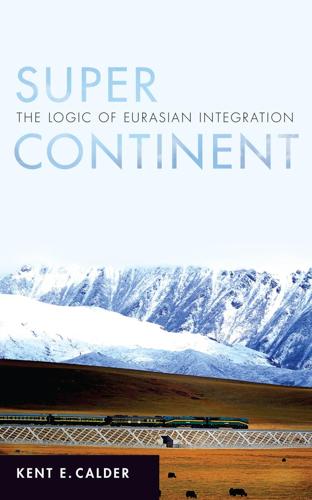
Super Continent: The Logic of Eurasian Integration
by
Kent E. Calder
Published 28 Apr 2019
So there is ample reason for a rising China to think of that strategic waterway possessively, as the United States has historically regarded its own nearby Caribbean.18 Several nations in Southeast Asia, including Vietnam, Malaysia, and the Philippines, have traditionally taken a very different view, supported by the United States.19 In January 2013, the Philippines instituted arbitration proceedings against the PRC under UNCLOS Annex VII with the Permanent Court of Arbitration (PCA) in The Hague. China adopted a position of nonacceptance and nonparticipation in the proceedings.20 China also responded with land reclamation in the Spratlys, including the construction of artificial islands for military purposes, and by erecting oil rigs in the Paracels.21 In July 2016 the PCA rendered its ruling in favor of the Philippines.
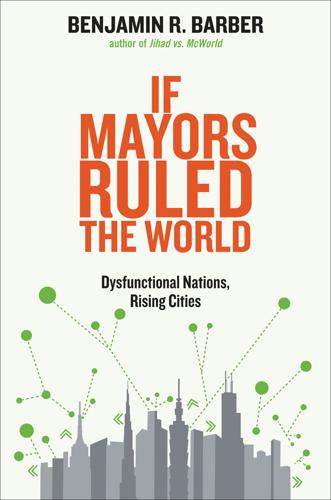
If Mayors Ruled the World: Dysfunctional Nations, Rising Cities
by
Benjamin R. Barber
Published 5 Nov 2013
These treaties, effectively nullified by America’s refusal to infringe its sovereign rights, include the Anti-Ballistic Missile (ABM) Treaty; the Kyoto Protocol; the Convention on Discrimination Against Women; the Conventions on the Rights of the Child; the International Covenant on Economic, Social and Cultural Rights; the Chemical Weapons Convention; the Land Mine Ban Treaty; the International Criminal Court; and the Law of the Sea (UNCLOS). Here then is the paradox: sovereignty, the state’s defining essence and greatest virtue, is impressively impervious to encroachment, resistant to pooling, and defiant in the face of the brute facts of our new century’s interdependence. Never before has sovereign power been used so effectively to impede and thwart collective action.

Likewar: The Weaponization of Social Media
by
Peter Warren Singer
and
Emerson T. Brooking
Published 15 Mar 2018
Ameripan,” HuffPost, December 6, 2017, https://www.huffingtonpost.com/peter-navarro-and-greg-autry/senkaku-suicide-scenarios_b_9583586.html. 216 censors and state media: Bethany Allen-Ebrahimian, “After South China Sea Ruling, China Censors Online Calls for War,” Tea Leaf Nation (blog), Foreign Policy, July 12, 2016, https://foreignpolicy.com/2016/07/12/after-south-china-sea-ruling-china-censors-online-calls-for-war-unclos-tribunal/. 216 “Stop boasting”: Ibid. 217 “Gone are the days”: Thomas J. Christensen, “The Advantages of an Assertive China,” Foreign Affairs, March/April 2011, https://www.foreignaffairs.com/articles/east-asia/2011-02-21/advantages-assertive-china. 217 Confiding in their diaries: Jan Ian Chong and Todd H.
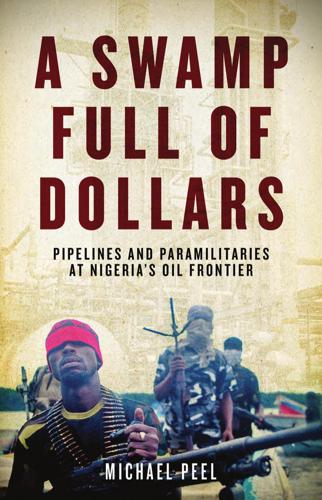
A Swamp Full of Dollars: Pipelines and Paramilitaries at Nigeria's Oil Frontier
by
Michael Peel
Published 1 Jan 2009
I ask Captain Wagner later what he feels he would have the authority to do if he came across a kidnapping or attack on an oil installation. Lawyers say a complex blend of international agreements and domestic rules governing piracy is causing disagreements about when and how other ships can intervene. Some countries feel that they do not have the power for their ships to act under the 26-year-old United Nations Convention on the Law of the Sea, the framework for international maritime rules. The convention authorizes ‘repression STARK FISH ILLITERATES , BUT NOT AND FISHING JUNKIES 145 of piracy’, but only on the high seas rather than in national territorial waters. It also threatens states with financial penalties if they seize ships ‘without adequate grounds’.
…
G. 43 Balewa, Sir Tafawa 43, 50 Balogun, Tafa 177 Bari, Daniel Orumiegha- 165 Bayelsa State 8, 23, 31, 106, 108, 110, 183 Alamieyeseigha, DSP, governor 105–13, 132–3, 189, 201 Poverty Eradication Committee 108 Bealer, Jay 141 Benn, Hilary 170 Benue River 5–6 Benue State 8 Biafra, see civil war Bill and Melinda Gates Foundation 81 bin Laden, Osama 9 Black Faces, White Masks 191 Blair, Tony 122 Bonga oilfield 142 Bongo, Omar 150, 151 Bonny Island 27, 145 Bookshop House 68, 70 BP 23, 41 Anglo-Iranian Oil Company 41 Brass 32, 34–5, 38, 39, 44–5, 107 British cemetery 44–5 Charles, Charles 45 Chatteris, Henry Byrne 45 HMS St George 45 Sutton, William 45 Taylor, George John 45 Briggs, Boma 18 Britain Aberdare, Lord 40 banking crisis 75 Blair, Tony 122 British oil 31 Brown, Gordon 122, 143 Chamberlain, Joseph 40 Churchill, Winston 41, 49, 90 civil war, involvement in 47–58 civil war, UK involvement in 48–61 colonial relationship with Nigeria xvi, 24, 31, 32, 35, 38, 40, 41, 42, 76–7, 169 Elizabeth II, Queen 201–202 INDEXAND JUNKIES STARK ILLITERATES Financial Services Authority 122, 131 Goldie, Sir George 36–7, 40 Grey, Sir Ralph 42 Hunt, Sir David 56–7 Kirk, Sir John 38–9 Macmillan, Harold 31 Oil Rivers Protectorate 36 post-independence relationship with Nigeria xvii, 48, 50, 57, 60 Royal Niger Company 32, 33–4, 35, 36–40, 191, 199 Stewart, Michael 54, 55 Straw, Jack 17, 201 Thatcher, Margaret 74, 116 Thomas, George 54 Thomas, Sir Philip 201 Unilever 33 United Africa Company 33, 34, 36 Wilson, Harold 48, 50, 51, 54 Brown, Gordon 122, 143 Buhari, Muhammadu 17 buses, Lagos 71, 96–103 Chiguzor 97–103 Lagos State Traffic Management Authority (‘MOT’) 99, 100 National Union of Road Transport Workers 70–71, 98–100, 101 Obalende terminus 100, 103 Bush, George W. 149 Cape Verde islands 147, 153 Chamberlain, Joseph 40 Chang, Clifton 155 Chelsea Hotel, Abuja 132–3 Chevron xvi, 6, 166, 186–8 Chiguzor 97–103 213 China in Cape Verde 153 expansion in Africa 139, 140, 146, 153–4, 168, 169, 203 exploration contracts xvii–xviii Dangote Group 153, 203 Sinoma International Engineering 154 Churchill, Winston 41, 49, 90 Citibank 124–5 civil war (1967–70) 44, 47–59 death toll in 52 Gowon, General Yakuba 51, 58 Hunt, Sir David 56–7 Ironsi, Major-General Johnson Umunnakwe Aguiyi- 50–51 January Boys 50 Ojukwu, General Chukwuemeka 47–58, 181 Shell 48, 52, 54–5 Stewart, Michael 54 Thomas, George 54 Wilson, Harold 48, 50, 51, 54 Clifford, Reuben Wilson 189–90, 191 Community Primary School One 171–2 Comrade 180–83, 186, 193 Congo 82 corruption xvi, xvii, 18, 59, 90, 103, 105, 114–15, 158, 161, 167, 171, 177, 202–203 ‘area boys’ urban gangs 67–73, 92 Balogun, Tafa 177 banks 106, 109–13, 115–132 Citibank 124–5 UBS 110–12 214 A SWAMP FULL OF DOLLARS Economic and Financial Crimes Commission (EFCC) 109, 112, 113, 114, 177, 202 Ribadu, Nuhu 202–203 electoral 10, 16–17, 50, 107–108, 204 international 145–6 Transparency International 146 transport system 103, 109 Crowder, Michael 40–41 Curtis, Richard 171 Dangote Group 153 Sinoma International Engineering 154 Dariye, Joshua 113 Daukoru, Edmund 203 Daura, Ahmadu 123 debt crisis, see foreign debt, Nigerian Dechaine, Lieutenant-Colonel Rene 140, 152 Delta State 113 Dutch 35 Dada, Timothy 95–6 Dallas, Alexander 152 Dallas 137 Bealer, Jay 141 Chang, Clifton 155 Esono, Pablo 141 Florio, Lieutenant Frank 150 Hendrickson, Commander Bob 141, 148, 149 Hollister, Jay 144 Jones, Ansel 137–8 Kaichi Maru 144 Kurta, Rear Admiral Anthony 140 Montalvo, Lieutenant Frank 151 Nowell, Commodore John 140, 150 Nzang, Lieutenant Placido 141, 155 Tiny, Jimmy 143 UN Convention on the Law of the Sea 144 Wagner, Captain 143, 144, 145, 148, 149, 152 Dangosu, Giedia 24 Dangote, Aliko 203 Economic and Financial Crimes Commission (EFCC) 109, 112, 113, 114, 177, 202 economic collapse see foreign debt, Nigerian Egbesu 5, 13, 183, 191, 192, 198 Ekwueme, Alex 59, 61–4 Elf 151 Elizabeth II, Queen 201–202 Emmanuel, Henry 193–4 Energy Information Administration, US 6, 145 Eni 6, 29, 146 Enron 146 Enugu 47 Equatorial Guinea 141, 142 Mbasago, President Obiang Nguema 141 Ernest 182 Esono, Pablo 141 European Union xviii ExxonMobil xvi, 6, 159 Eze, Kenneth 84–7 Fanon, Franz 191 50 Cent 81 INDEXAND JUNKIES STARK ILLITERATES financial crisis, international 75, 145, 150, 168 Florio, Lieutenant Frank 150 foreign debt, Nigerian 5 8–64, 122, 160, 171 Africa Economic Digest 60, 63 Ekwueme, Alex 59, 61–4 Paris Club 61, 64, 171 Synge, Richard 60, 63, 209 Wolfensohn, James (World Bank) 63 France relationship with Nigeria 36, 59 Freeman, Commander Timi 184–98 Friedman, Thomas 141 G8 summit (2005) 170, 171 Gabon 118, 150 Bongo, Omar 150, 151 Dechaine, Lieutenant-Colonel Rene 140, 152 Gana, Peter 120 Port-Gentil 150, 152 Gazprom xviii Gbomo, Jomo 180 Germans 10 Ghana 43, 51, 60–61, 76, 118 Accra 44 Nkrumah, Kwame 43 Godson 184–98 ‘Golden Arches’ theory 141 Goldie, Sir George 36–7, 40 The Good, the Bad and the Ugly 21 Gowon, General Yakuba 51, 58 Grey, Sir Ralph 42–3 Grimu, Richard 33 Gulf of Guinea xiii, 138, 141, 145, 147, 154 215 Gusau, General Mohammed Aliyu 119 Halliburton 145–6 Stanley, Jack 145–6 Hendrickson, Commander Bob 141, 148, 149 HMS St George 45 Hobbes, Thomas 75, 86 Hollister, Jay 144 ‘Horatius’, poem 53 Hunt, Sir David 56–7 Iblubor, Blessing 16 Ibori, James 113–14, 202 MER Engineering 114 Icelanders 10 Igbo people 41, 47, 49, 50, 51 civil war and Biafra 47–9 Ijaw people 5, 7, 8, 18, 19, 21, 108, 161, 164, 181, 183, 186, 198 Ikebiri I 185–7, 189 Ododo, Francis 185–7 independence, Nigerian 43, 44, 169 Inengite, Chief Osobere 24–7, 29, 170 Inengite, Clifford 29–30 Integrate Production System Surveillance (IPSS) 162 International Maritime Bureau 142 Ironsi, Major-General Johnson Umunnakwe Aguiyi- 50–51 Islam al-Qaeda 9 bin Laden, Osama 9 in Nigeria 9, 41 Itsekiri people 164 Iweala, Ngozi Okonjo- 74, 158 216 A SWAMP FULL OF DOLLARS Izon language 30, 33 Jaja, Tamunosisi Gogo 172–4 January Boys 50 Jones, Ansel 137–8 Joseph, Colin 109 Kaichi Maru 144 Kalabar River 3 Kirk, Sir John 38–9 KKK 10 Korokorose 185, 192–7 Kuluama I 188–92 Clifford, Reuben Wilson 189–90, 191 Community Development Council 189 Orumo, Emmanuel 189 Kunle 179, 182 Kuramo Beach 80–87 Bala 83 Bullet 83 Dreams bar 84 Eze, Kenneth 84–7 Le Meridien Eko hotel 80, 81 Queen 83 Sammy’s Bar 80 Scorpion 81–4 Varieties Bar 81, 82 Kurta, Rear Admiral Anthony 140 Lagos xvi, xviii, xix, xx, 36, 67, 73–80 Balogun market 69 Bookshop House 68, 70 Broad Street 70 buses 71, 96–103 Campos Square 70, 73 Ikeja district 93 Kuramo Beach 80–87 Odunlami Street 68 okadas 89–96, 205 Orile 102 Osodi 99, 100, 103 Somolu 90 Third Mainland Bridge 78, 100 transport system 90–103, 205 Victoria Island 77, 80, 205–206 Lagos State Traffic Management Authority (‘MOT’) 99, 100 Leviathan 75 Liberia 9, 14, 70, 79, 172, 188, 197 life expectancy of Nigerians 73 Live 8 60, 171 Macaulay, Herbert 67 Macaulay, Thomas Babington 53 Macbeth 15 Macmillan, Harold 31 Mann, Simon 142 Marathon 143 Martins 181 Mathews, Michael 124 Mbasago, President Obiang Nguema 141 McCarthy, Cormac 76 McKenzie, Glenn 180–99, 210 MEND, see Movement for the Emancipation of the Niger Delta Middle East 6 concerns about disruption in xviii, 9, 139, 203 elections 17 Saudi Arabia oil exports 6 minibuses 71 Miss World contest (2002) xix Mistry, Rohinton 206 Mobile Police 184 INDEXAND JUNKIES STARK ILLITERATES Molue see buses, Lagos Monfrini, Enrico 115, 117–30 Gusau, General Mohammed Aliyu 119 Swiss Federal Office of Justice 126 Montalvo, Lieutenant Frank 151 Montero, Kaizer xiv–xv, xx Morgan Procurement 124 MOSEND see Movement for the Survival of the Ethnic Nationalities in the Niger Delta Motorcycle Operators Association of Lagos State 90–94 Adio, Innocent 95 Agumba, Leonard 94–5 Dada, Timothy 95–6 Gbagada branch 94 Orimogunje, Olufemi 91–4 Movement for the Emancipation of the Niger Delta (MEND) 21, 22, 163, 179–99 Freeman, Commander Timi 184–98 Gbomo, Jomo 180 Olotu 197–9 Movement for the Survival of the Ethnic Nationalities in the Niger Delta (MOSEND) 181 National Archives 35, 37, 42, 43, 54 National Intelligence Council, US xvii National Oil Spill Detection and Response Agency 27–8 National Petroleum Corporation xviii 217 National Union of Road Transport Workers 70–71, 98–100, 101 Ndibe, Okey 79 Niger Delta xiii, 3–22, 23–45 background and people 5–6 Benue River 5–6 disruption and militancy in 3–22, 7, 8, 10 history of oil discovery in 23–45 housing 25 Niger Delta People’s Volunteer Force 3, 187 Niger River 5–6, 36 village life in xvii, 18, 28–9, 189–92, 195–7 Niger Delta People’s Volunteer Force 3, 187 Niger River 5–6, 36 Nigeria, civil war see civil war Nigeria, creation of as new country 41, 42 Lugard, Flora 41 Nigeria, foreign debt see foreign debt, Nigerian Nigeria, independence see independence, Nigerian Nigeria, religion see religion Nigerian Family Support Programme 124 Nigerian National Petroleum Corporation 125, 183 Nitel 126 Nkrumah, Kwame 43 Nowell, Commodore John 140, 150 Nyingife, Sunday 29, 30 Nzang, Lieutenant Placido 141, 155 218 A SWAMP FULL OF DOLLARS Obasanjo, Olusegun (president of Nigeria 1999–2007) 8, 16, 17, 19, 24, 62, 63, 114, 116, 129, 146, 155, 158, 176, 186 1978 Land Use Act 9, 186 Odi 8 Odili, Peter 10, 172–6 Odioma 165 Bari, Daniel Orumiegha- 165 Ododo, Francis 185–7 Odugbemi, Sina 90–103 Ogoni 7, 161 oil export levels xvii, 6, 7, 27, 52, 58, 145 spills xv, 27–8 stealing of xvi, 13, 15, 17–19, 143, 143, 168, 171 world prices xvi, xvii, 19, 58, 60, 90, 109, 139, 145, 154, 160, 167–8, 203 oil companies Agip 192, 195 BP 23, 41 Anglo-Iranian Oil Company 41 Chevron xvi, 6, 166, 186–8 Elf 151 Eni 6, 29, 146 ExxonMobil xvi, 6, 159 Shell xv, xvi, 6, 7, 15, 18, 23, 28, 41, 42, 146, 157–70, 198 Bonga oilfield 142 in Oloibiri 25–9 interest in civil war 48, 52, 54–5 London office 157–70 Omiyi, Basil 157–70, 198 Total 6, 29, 146 Oil Rivers Protectorate 36 oil spills xv, 27–8 National Oil Spill Detection and Response Agency 27–8 Ojukwu, General Chukwuemeka 47–58, 181 okadas 89–96, 205 Adio, Innocent 95 Agumba, Leonard 94–5 Dada, Timothy 95–6 Orimogunje, Olufemi 91–4 Palm Grove Unit, Motorcycle Operators Association of Lagos State 90–94 riots, Ikeja district 93 Oko 61 Oloibiri 23–7, 170, 181 Inengite, Chief Osobere 24–7, 29, 170 Inengite, Clifford 29–30 Nyingife, Sunday 29, 30 Oloibiri Oil and Gas Research Institute 24 Shell in 25–9 Oloibiri Oil and Gas Research Institute 24 Olotu 197–9 ‘Operation Fire for Fire’ 161 Operation Locust Feast 19 Oputa, Charly Boy 89, 90, 94 Organisation for Economic Co-operation and Development (OECD) 146 Orimogunje, Olufemi 91–4 Orumo, Emmanuel 189 palm oil xvi, 32, 34, 32, 37 1895 Akassa uprising 32–5, 38–9, 107 Paris Club 61, 64, 171 Paul, A.A. 195 INDEXAND JUNKIES STARK ILLITERATES Pax Christi 163 People’s Democratic Party 30, 107, 172, 202 Odili, Peter 172–6 piracy 142–3, 144–5 Sirius Star 142 UN Convention on the Law of the Sea 144 Plateau State 113 police 21, 161–2 Balogun, Tafa 177 Mobile Police 184 ‘Operation Fire for Fire’ 161 Supernumerary (Spy) police 162 Port Harcourt 3, 4, 13, 17, 20, 23, 51, 52, 162, 167, 175, 176, 179, 180, 202 Port-Gentil, Gabon 150, 152 Portuguese 35, 76 Poverty Eradication Committee, Bayelsa State 108 Powell, Colin xix The Prize: The Epic Quest for Oil, Money and Power 151 religion 9, 41, 71, 102 Ribadu, Nuhu 202–203 Rivers State 17, 171–6 budget 174–6 Community Primary School One 171–2 Government House 173, 174–6 Jaja, Tamunosisi Gogo 172–4, 175 Odili, Peter 172–6 State Assembly building 173 The Road 76 Royal Dutch Shell see Shell Royal Niger Company 32, 33–4, 35, 36–40, 191, 199 219 Unilever 33 United Africa Company 33, 34, 36 Wallace, William 38 Russell, Henry 34 Russia Gazprom xviii Georgia conflict 150 oil exports 6 relationship with Nigeria xviii, 139, 146, 168, 203 Sagbama 107 Salisbury, Marquess of 38, 40 Sangama 18 São Tomé and Príncipe xiii–xx, 139–42 agua petróleo xiii–xv, xvi, xx, 139 Saro-Wiwa, Ken 7, 8, 22, 158, 161 Scorpion 81–4 Second World War 42 September 2001 terrorist attacks xviii, 161, 203 Shad-Ro Services 162 Shagari, Shehu 59 Shell xv, xvi, 6, 7, 15, 18, 23, 28, 41, 42, 146, 157–70, 198 in Oloibiri 25–9 interest in civil war 48, 52, 54–5 Bonga oilfield 142 London office 157–70 Omiyi, Basil 157–70, 198 Siemens 126 Simeon 183–99 Sirius Star 142 slavery 32, 35–6, 40, 76, 153 Smith, M.
…
G. 43 Balewa, Sir Tafawa 43, 50 Balogun, Tafa 177 Bari, Daniel Orumiegha- 165 Bayelsa State 8, 23, 31, 106, 108, 110, 183 Alamieyeseigha, DSP, governor 105–13, 132–3, 189, 201 Poverty Eradication Committee 108 Bealer, Jay 141 Benn, Hilary 170 Benue River 5–6 Benue State 8 Biafra, see civil war Bill and Melinda Gates Foundation 81 bin Laden, Osama 9 Black Faces, White Masks 191 Blair, Tony 122 Bonga oilfield 142 Bongo, Omar 150, 151 Bonny Island 27, 145 Bookshop House 68, 70 BP 23, 41 Anglo-Iranian Oil Company 41 Brass 32, 34–5, 38, 39, 44–5, 107 British cemetery 44–5 Charles, Charles 45 Chatteris, Henry Byrne 45 HMS St George 45 Sutton, William 45 Taylor, George John 45 Briggs, Boma 18 Britain Aberdare, Lord 40 banking crisis 75 Blair, Tony 122 British oil 31 Brown, Gordon 122, 143 Chamberlain, Joseph 40 Churchill, Winston 41, 49, 90 civil war, involvement in 47–58 civil war, UK involvement in 48–61 colonial relationship with Nigeria xvi, 24, 31, 32, 35, 38, 40, 41, 42, 76–7, 169 Elizabeth II, Queen 201–202 INDEXAND JUNKIES STARK ILLITERATES Financial Services Authority 122, 131 Goldie, Sir George 36–7, 40 Grey, Sir Ralph 42 Hunt, Sir David 56–7 Kirk, Sir John 38–9 Macmillan, Harold 31 Oil Rivers Protectorate 36 post-independence relationship with Nigeria xvii, 48, 50, 57, 60 Royal Niger Company 32, 33–4, 35, 36–40, 191, 199 Stewart, Michael 54, 55 Straw, Jack 17, 201 Thatcher, Margaret 74, 116 Thomas, George 54 Thomas, Sir Philip 201 Unilever 33 United Africa Company 33, 34, 36 Wilson, Harold 48, 50, 51, 54 Brown, Gordon 122, 143 Buhari, Muhammadu 17 buses, Lagos 71, 96–103 Chiguzor 97–103 Lagos State Traffic Management Authority (‘MOT’) 99, 100 National Union of Road Transport Workers 70–71, 98–100, 101 Obalende terminus 100, 103 Bush, George W. 149 Cape Verde islands 147, 153 Chamberlain, Joseph 40 Chang, Clifton 155 Chelsea Hotel, Abuja 132–3 Chevron xvi, 6, 166, 186–8 Chiguzor 97–103 213 China in Cape Verde 153 expansion in Africa 139, 140, 146, 153–4, 168, 169, 203 exploration contracts xvii–xviii Dangote Group 153, 203 Sinoma International Engineering 154 Churchill, Winston 41, 49, 90 Citibank 124–5 civil war (1967–70) 44, 47–59 death toll in 52 Gowon, General Yakuba 51, 58 Hunt, Sir David 56–7 Ironsi, Major-General Johnson Umunnakwe Aguiyi- 50–51 January Boys 50 Ojukwu, General Chukwuemeka 47–58, 181 Shell 48, 52, 54–5 Stewart, Michael 54 Thomas, George 54 Wilson, Harold 48, 50, 51, 54 Clifford, Reuben Wilson 189–90, 191 Community Primary School One 171–2 Comrade 180–83, 186, 193 Congo 82 corruption xvi, xvii, 18, 59, 90, 103, 105, 114–15, 158, 161, 167, 171, 177, 202–203 ‘area boys’ urban gangs 67–73, 92 Balogun, Tafa 177 banks 106, 109–13, 115–132 Citibank 124–5 UBS 110–12 214 A SWAMP FULL OF DOLLARS Economic and Financial Crimes Commission (EFCC) 109, 112, 113, 114, 177, 202 Ribadu, Nuhu 202–203 electoral 10, 16–17, 50, 107–108, 204 international 145–6 Transparency International 146 transport system 103, 109 Crowder, Michael 40–41 Curtis, Richard 171 Dangote Group 153 Sinoma International Engineering 154 Dariye, Joshua 113 Daukoru, Edmund 203 Daura, Ahmadu 123 debt crisis, see foreign debt, Nigerian Dechaine, Lieutenant-Colonel Rene 140, 152 Delta State 113 Dutch 35 Dada, Timothy 95–6 Dallas, Alexander 152 Dallas 137 Bealer, Jay 141 Chang, Clifton 155 Esono, Pablo 141 Florio, Lieutenant Frank 150 Hendrickson, Commander Bob 141, 148, 149 Hollister, Jay 144 Jones, Ansel 137–8 Kaichi Maru 144 Kurta, Rear Admiral Anthony 140 Montalvo, Lieutenant Frank 151 Nowell, Commodore John 140, 150 Nzang, Lieutenant Placido 141, 155 Tiny, Jimmy 143 UN Convention on the Law of the Sea 144 Wagner, Captain 143, 144, 145, 148, 149, 152 Dangosu, Giedia 24 Dangote, Aliko 203 Economic and Financial Crimes Commission (EFCC) 109, 112, 113, 114, 177, 202 economic collapse see foreign debt, Nigerian Egbesu 5, 13, 183, 191, 192, 198 Ekwueme, Alex 59, 61–4 Elf 151 Elizabeth II, Queen 201–202 Emmanuel, Henry 193–4 Energy Information Administration, US 6, 145 Eni 6, 29, 146 Enron 146 Enugu 47 Equatorial Guinea 141, 142 Mbasago, President Obiang Nguema 141 Ernest 182 Esono, Pablo 141 European Union xviii ExxonMobil xvi, 6, 159 Eze, Kenneth 84–7 Fanon, Franz 191 50 Cent 81 INDEXAND JUNKIES STARK ILLITERATES financial crisis, international 75, 145, 150, 168 Florio, Lieutenant Frank 150 foreign debt, Nigerian 5 8–64, 122, 160, 171 Africa Economic Digest 60, 63 Ekwueme, Alex 59, 61–4 Paris Club 61, 64, 171 Synge, Richard 60, 63, 209 Wolfensohn, James (World Bank) 63 France relationship with Nigeria 36, 59 Freeman, Commander Timi 184–98 Friedman, Thomas 141 G8 summit (2005) 170, 171 Gabon 118, 150 Bongo, Omar 150, 151 Dechaine, Lieutenant-Colonel Rene 140, 152 Gana, Peter 120 Port-Gentil 150, 152 Gazprom xviii Gbomo, Jomo 180 Germans 10 Ghana 43, 51, 60–61, 76, 118 Accra 44 Nkrumah, Kwame 43 Godson 184–98 ‘Golden Arches’ theory 141 Goldie, Sir George 36–7, 40 The Good, the Bad and the Ugly 21 Gowon, General Yakuba 51, 58 Grey, Sir Ralph 42–3 Grimu, Richard 33 Gulf of Guinea xiii, 138, 141, 145, 147, 154 215 Gusau, General Mohammed Aliyu 119 Halliburton 145–6 Stanley, Jack 145–6 Hendrickson, Commander Bob 141, 148, 149 HMS St George 45 Hobbes, Thomas 75, 86 Hollister, Jay 144 ‘Horatius’, poem 53 Hunt, Sir David 56–7 Iblubor, Blessing 16 Ibori, James 113–14, 202 MER Engineering 114 Icelanders 10 Igbo people 41, 47, 49, 50, 51 civil war and Biafra 47–9 Ijaw people 5, 7, 8, 18, 19, 21, 108, 161, 164, 181, 183, 186, 198 Ikebiri I 185–7, 189 Ododo, Francis 185–7 independence, Nigerian 43, 44, 169 Inengite, Chief Osobere 24–7, 29, 170 Inengite, Clifford 29–30 Integrate Production System Surveillance (IPSS) 162 International Maritime Bureau 142 Ironsi, Major-General Johnson Umunnakwe Aguiyi- 50–51 Islam al-Qaeda 9 bin Laden, Osama 9 in Nigeria 9, 41 Itsekiri people 164 Iweala, Ngozi Okonjo- 74, 158 216 A SWAMP FULL OF DOLLARS Izon language 30, 33 Jaja, Tamunosisi Gogo 172–4 January Boys 50 Jones, Ansel 137–8 Joseph, Colin 109 Kaichi Maru 144 Kalabar River 3 Kirk, Sir John 38–9 KKK 10 Korokorose 185, 192–7 Kuluama I 188–92 Clifford, Reuben Wilson 189–90, 191 Community Development Council 189 Orumo, Emmanuel 189 Kunle 179, 182 Kuramo Beach 80–87 Bala 83 Bullet 83 Dreams bar 84 Eze, Kenneth 84–7 Le Meridien Eko hotel 80, 81 Queen 83 Sammy’s Bar 80 Scorpion 81–4 Varieties Bar 81, 82 Kurta, Rear Admiral Anthony 140 Lagos xvi, xviii, xix, xx, 36, 67, 73–80 Balogun market 69 Bookshop House 68, 70 Broad Street 70 buses 71, 96–103 Campos Square 70, 73 Ikeja district 93 Kuramo Beach 80–87 Odunlami Street 68 okadas 89–96, 205 Orile 102 Osodi 99, 100, 103 Somolu 90 Third Mainland Bridge 78, 100 transport system 90–103, 205 Victoria Island 77, 80, 205–206 Lagos State Traffic Management Authority (‘MOT’) 99, 100 Leviathan 75 Liberia 9, 14, 70, 79, 172, 188, 197 life expectancy of Nigerians 73 Live 8 60, 171 Macaulay, Herbert 67 Macaulay, Thomas Babington 53 Macbeth 15 Macmillan, Harold 31 Mann, Simon 142 Marathon 143 Martins 181 Mathews, Michael 124 Mbasago, President Obiang Nguema 141 McCarthy, Cormac 76 McKenzie, Glenn 180–99, 210 MEND, see Movement for the Emancipation of the Niger Delta Middle East 6 concerns about disruption in xviii, 9, 139, 203 elections 17 Saudi Arabia oil exports 6 minibuses 71 Miss World contest (2002) xix Mistry, Rohinton 206 Mobile Police 184 INDEXAND JUNKIES STARK ILLITERATES Molue see buses, Lagos Monfrini, Enrico 115, 117–30 Gusau, General Mohammed Aliyu 119 Swiss Federal Office of Justice 126 Montalvo, Lieutenant Frank 151 Montero, Kaizer xiv–xv, xx Morgan Procurement 124 MOSEND see Movement for the Survival of the Ethnic Nationalities in the Niger Delta Motorcycle Operators Association of Lagos State 90–94 Adio, Innocent 95 Agumba, Leonard 94–5 Dada, Timothy 95–6 Gbagada branch 94 Orimogunje, Olufemi 91–4 Movement for the Emancipation of the Niger Delta (MEND) 21, 22, 163, 179–99 Freeman, Commander Timi 184–98 Gbomo, Jomo 180 Olotu 197–9 Movement for the Survival of the Ethnic Nationalities in the Niger Delta (MOSEND) 181 National Archives 35, 37, 42, 43, 54 National Intelligence Council, US xvii National Oil Spill Detection and Response Agency 27–8 National Petroleum Corporation xviii 217 National Union of Road Transport Workers 70–71, 98–100, 101 Ndibe, Okey 79 Niger Delta xiii, 3–22, 23–45 background and people 5–6 Benue River 5–6 disruption and militancy in 3–22, 7, 8, 10 history of oil discovery in 23–45 housing 25 Niger Delta People’s Volunteer Force 3, 187 Niger River 5–6, 36 village life in xvii, 18, 28–9, 189–92, 195–7 Niger Delta People’s Volunteer Force 3, 187 Niger River 5–6, 36 Nigeria, civil war see civil war Nigeria, creation of as new country 41, 42 Lugard, Flora 41 Nigeria, foreign debt see foreign debt, Nigerian Nigeria, independence see independence, Nigerian Nigeria, religion see religion Nigerian Family Support Programme 124 Nigerian National Petroleum Corporation 125, 183 Nitel 126 Nkrumah, Kwame 43 Nowell, Commodore John 140, 150 Nyingife, Sunday 29, 30 Nzang, Lieutenant Placido 141, 155 218 A SWAMP FULL OF DOLLARS Obasanjo, Olusegun (president of Nigeria 1999–2007) 8, 16, 17, 19, 24, 62, 63, 114, 116, 129, 146, 155, 158, 176, 186 1978 Land Use Act 9, 186 Odi 8 Odili, Peter 10, 172–6 Odioma 165 Bari, Daniel Orumiegha- 165 Ododo, Francis 185–7 Odugbemi, Sina 90–103 Ogoni 7, 161 oil export levels xvii, 6, 7, 27, 52, 58, 145 spills xv, 27–8 stealing of xvi, 13, 15, 17–19, 143, 143, 168, 171 world prices xvi, xvii, 19, 58, 60, 90, 109, 139, 145, 154, 160, 167–8, 203 oil companies Agip 192, 195 BP 23, 41 Anglo-Iranian Oil Company 41 Chevron xvi, 6, 166, 186–8 Elf 151 Eni 6, 29, 146 ExxonMobil xvi, 6, 159 Shell xv, xvi, 6, 7, 15, 18, 23, 28, 41, 42, 146, 157–70, 198 Bonga oilfield 142 in Oloibiri 25–9 interest in civil war 48, 52, 54–5 London office 157–70 Omiyi, Basil 157–70, 198 Total 6, 29, 146 Oil Rivers Protectorate 36 oil spills xv, 27–8 National Oil Spill Detection and Response Agency 27–8 Ojukwu, General Chukwuemeka 47–58, 181 okadas 89–96, 205 Adio, Innocent 95 Agumba, Leonard 94–5 Dada, Timothy 95–6 Orimogunje, Olufemi 91–4 Palm Grove Unit, Motorcycle Operators Association of Lagos State 90–94 riots, Ikeja district 93 Oko 61 Oloibiri 23–7, 170, 181 Inengite, Chief Osobere 24–7, 29, 170 Inengite, Clifford 29–30 Nyingife, Sunday 29, 30 Oloibiri Oil and Gas Research Institute 24 Shell in 25–9 Oloibiri Oil and Gas Research Institute 24 Olotu 197–9 ‘Operation Fire for Fire’ 161 Operation Locust Feast 19 Oputa, Charly Boy 89, 90, 94 Organisation for Economic Co-operation and Development (OECD) 146 Orimogunje, Olufemi 91–4 Orumo, Emmanuel 189 palm oil xvi, 32, 34, 32, 37 1895 Akassa uprising 32–5, 38–9, 107 Paris Club 61, 64, 171 Paul, A.A. 195 INDEXAND JUNKIES STARK ILLITERATES Pax Christi 163 People’s Democratic Party 30, 107, 172, 202 Odili, Peter 172–6 piracy 142–3, 144–5 Sirius Star 142 UN Convention on the Law of the Sea 144 Plateau State 113 police 21, 161–2 Balogun, Tafa 177 Mobile Police 184 ‘Operation Fire for Fire’ 161 Supernumerary (Spy) police 162 Port Harcourt 3, 4, 13, 17, 20, 23, 51, 52, 162, 167, 175, 176, 179, 180, 202 Port-Gentil, Gabon 150, 152 Portuguese 35, 76 Poverty Eradication Committee, Bayelsa State 108 Powell, Colin xix The Prize: The Epic Quest for Oil, Money and Power 151 religion 9, 41, 71, 102 Ribadu, Nuhu 202–203 Rivers State 17, 171–6 budget 174–6 Community Primary School One 171–2 Government House 173, 174–6 Jaja, Tamunosisi Gogo 172–4, 175 Odili, Peter 172–6 State Assembly building 173 The Road 76 Royal Dutch Shell see Shell Royal Niger Company 32, 33–4, 35, 36–40, 191, 199 219 Unilever 33 United Africa Company 33, 34, 36 Wallace, William 38 Russell, Henry 34 Russia Gazprom xviii Georgia conflict 150 oil exports 6 relationship with Nigeria xviii, 139, 146, 168, 203 Sagbama 107 Salisbury, Marquess of 38, 40 Sangama 18 São Tomé and Príncipe xiii–xx, 139–42 agua petróleo xiii–xv, xvi, xx, 139 Saro-Wiwa, Ken 7, 8, 22, 158, 161 Scorpion 81–4 Second World War 42 September 2001 terrorist attacks xviii, 161, 203 Shad-Ro Services 162 Shagari, Shehu 59 Shell xv, xvi, 6, 7, 15, 18, 23, 28, 41, 42, 146, 157–70, 198 in Oloibiri 25–9 interest in civil war 48, 52, 54–5 Bonga oilfield 142 London office 157–70 Omiyi, Basil 157–70, 198 Siemens 126 Simeon 183–99 Sirius Star 142 slavery 32, 35–6, 40, 76, 153 Smith, M.
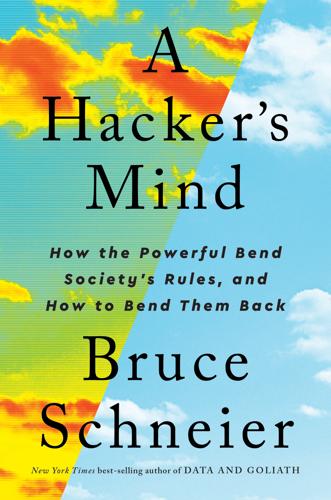
A Hacker's Mind: How the Powerful Bend Society's Rules, and How to Bend Them Back
by
Bruce Schneier
Published 7 Feb 2023
This was quickly popularized by other countries like Liberia and Singapore, and became an opportunity for smaller countries with few natural resources, like the Republic of Vanuatu. Shipowners loved this hack, because those countries had few and lax laws. Between the 1950s and 2010s, these “open registries” ballooned from 4% to 60% of ships. The 1994 United Nations Convention on the Law of the Sea specifies that there should be a “genuine link” between the ship and its flag; however, twenty-five years later the interpretation of that phrase is still a subject of debate. The same sort of reasoning is why corporations like to incorporate in Delaware. The state first began to adapt its tax laws in the late nineteenth century, making changes to attract businesses from larger, more prosperous states like New York.
…
Katzenbach, 164 spam, 46–47 spear phishing, 192 Spectre, 48 sponsored content, 194 spoofing, 81, 82 sports hacks, 41–44, 46, 103, 259n Summers, Larry, 97 sumptuary laws, 110 supply chain attacks, 145 Susskind, Jamie, 248 Suzuki, Daichi, 42 systems additional for hacking defense, 54, 60 biological, 19–20 defined, 17–18, 19 hierarchy and, 200 multiple levels of, 32 norms and, 66–67 resilience in, 152 rigidity of, 27 rules and, 18–19 thinking based on, 20 TaskRabbit, 124 Tata, Anthony, 160 tax code bugs in, 14–15 complexity of, 13–14 See also tax hacks Tax Cuts and Jobs Act (2017), 14, 15–16, 129, 146–47, 149 tax hacks architecture and, 109 creative hackers and, 22 cum-ex trading, 104–5 de minimis rule and, 249 defenses against, 15–16, 51, 61 jurisdictional rules and, 128–31 morality and, 263n wealth/power advantages and, 120 tax havens, 128–31 Tay (chatbot), 210 technological change, 251–52 telephone hacks, 26–27, 46 Terminator, 243 terrorism, 196 Tetzel, Johann, 72, 260n Theranos, 101 Thiel, Peter, 3, 4 threat modeling, 62–63, 64–65, 96 title-only bills, 154 “too big to fail” hack, 95–98 travel hacks, 179–80 trespass law, 135–36 tribal courts, 113 tribalism, 196–97 Troubled Asset Relief Program, 96 Trump, Donald banking hacks and, 77 cognitive hacks and, 182 destruction as result of hacking and, 173 legislative process hacks and, 147 norms and, 66–67 payday loans and, 126 social media and, 185 tax hacks and, 105 trust hacking, 27, 191–94, 218 TurboTax, 190 turducken, 110, 263n Turkle, Sherry, 218–19 Twenty-Fourth Amendment, 164 Twitter, 81 typos, 84–85 Uber, 99, 100, 101, 116, 123, 125, 264n unemployment insurance, 132–33 United Nations Convention on the Law of the Sea (1994), 130 user interface design, 189–90 Vacancies Reform Act (1998), 160 variable rewards, 186 venture capital (VC), 99–101, 125 Violence Against Women Act (2013), 114 voice assistants, 217 Volcker Rule, 77 Volkswagen, 234 Voltaire, 172 voter eligibility hacks, 161–63 voter ID laws, 164–65 Voting Rights Act (1965), 164 vulnerabilities acceptance of, 16 AI ability to find, 229–30, 238–39 ATM hacks and, 31, 33, 34 bugs as, 14–15 hacking as parasitical and, 48, 49 hacking hierarchy and, 201 hacking life cycle and, 21 identifying, 56–57, 77–78, 237–38 legislative process hacks and, 147–48, 267n of AI systems, 4, 209–11, 226–27 real estate hacks and, 86 responsible disclosure, 89–90 secure systems design and, 59 zero-day, 90 See also patching Walker, Scott, 166–67 WannaCry, 50 Warner, Mark, 190 Watts, Duncan, 97 wealth/power access and, 22 administrative burdens and, 134 democratic growth and, 250 election hacks and, 168–71 hacking advantages of, 103–4, 119–22 hacking governance systems and, 248 hacking normalization and, 73, 104, 119, 120, 122 impact on vulnerability patches and, 24 market hacks and, 97 trust breakdown and, 251 West, Kanye, 170 Westphal, Paul, 41 WeWork, 100 WikiLeaks, 191 Wilson, Edward O., 251 Winston, Patrick, 206 Women, Infants, and Children (WIC) program, 134 work-to-rule, 115–16, 121 YouTube, 185, 236 Zelenskyy, Volodymyr, 193 zero-day vulnerabilities, 90 Zone of Death jurisdictional loophole, 112–13 Zuckerberg, Mark, 94 Zuckerman, Ethan, 183 ALSO BY BRUCE SCHNEIER We Have Root Click Here to Kill Everybody Data and Goliath Carry On Liars and Outliers Cryptography Engineering Schneier on Security Practical Cryptography Beyond Fear Secrets and Lies The Twofish Encryption Algorithm The Electronic Privacy Papers E-Mail Security Protect Your Macintosh Applied Cryptography Copyright © 2023 by Bruce Schneier All rights reserved First Edition For information about permission to reproduce selections from this book, write to Permissions, W.
…
The hack lies in those jurisdictions’ deliberate exploitation of the rules governing jurisdiction in order to make their own more attractive. By pitting itself against other states, Delaware subverts the intent of federal interstate commerce rules and state tax authorities. Similarly, flags of convenience subvert the intent of the UN Convention on the Law of the Sea. These are all examples of the hacks made possible by an organization that is larger than the body that is regulating it. Corporations generally do business both in and out of Delaware. Maritime shipping companies are global—much larger than Panama. We’re seeing this now with the big tech companies.
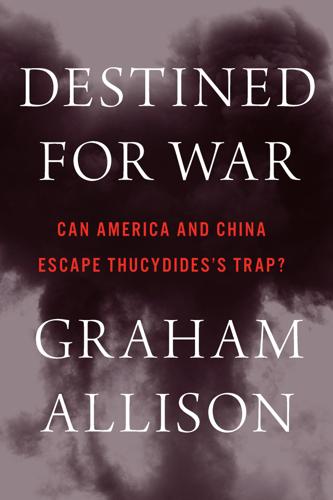
Destined for War: America, China, and Thucydides's Trap
by
Graham Allison
Published 29 May 2017
See Nicholas II (tsar) Tsinghua University, 16, 114, 231 Tsongas, 104 Tuchman, Barbara, xii Tufts University, 24 Turkey, xiii, 234, 250 Turner, George, 103 Two Centennial Goals, 118 Two-Power Standard, 56, 62, 72, 80, 196, 222, 272 U Ugarte, Manuel, 106 Uighurs, 224 Ukraine, 23, 178, 221 United Kingdom. See Britain United Nations, 156–57, 173–74, 205, 223 United Nations Charter, 190 United Nations Convention on the Law of the Sea, 127 United Nations Declaration of Human Rights, 206 United Nations Millennium Development Goals, 15 United Nations Security Council, 190, 331 n11 United States China Seas and, 160, 176 Cuba and, 95 culture and, xix, 136–53 economy and, xvi, 11–12, 181, 217 economy of, 9 Europe and, 194, 285–86 Japan and, 44, 46, 155, 177–78 military, 3, 129, 216 North Korea and, 178–80 nuclear weapons and, 206–10, 229, 295 n62 Panama Canal and, 99–102 predominance of, vii, viii, ix, 85, 106–7, 119, 126, 225, 279–83, 293 n44 rise of, 7, 62–66, 72, 85, 92–98, 187, 195–200, 213, 271–73, 313 n7, 319 n79 Sino-Soviet border wars and, 157–58 Soviet Union and, 201, 203, 234 STEM and, 16–18 strategy and, 8, 205, 219–25, 227, 235–38, 336 n8 Taiwan and, 173, 175, 212 Taiwan Strait Crisis and, 160 war and, 155, 161–66, 192, 202 See also China; Cold War; culture; economy; military; South China Sea; sphere of influence universalism, 111, 137–38, 143–44, 206, 223 US Cyber Command, 163, 183 Usedom, 254 US First Cavalry Division, 157 US Forest Service, 160 US-Japan mutual defense treaty, 212 US National Science Foundation, 17 U.S.
…
As a recent Defense Department report notes, China’s “latest land reclamation and construction will also allow it to berth deeper draft ships at outposts; expand its law enforcement and naval presence farther south into the South China Sea; and potentially operate aircraft—possibly as a divert airstrip for carrier-based aircraft—that could enable China to conduct sustained operations with aircraft carriers in the area.”67 China’s longer-term objective is also clear. For decades it has chafed at the operation of US spy ships in waters adjacent to its borders. China asserts that under the UN Convention on the Law of the Sea the United States must request permission for these ships to operate in China’s Exclusive Economic Zone, which extends two hundred nautical miles from China’s shores—a claim the US flatly rejects. Nonetheless, the construction of radar facilities on features in the South China Sea, as well as airstrips and ports, will make it easier for China to track (and harass) US ships conducting surveillance.

Ways of Being: Beyond Human Intelligence
by
James Bridle
Published 6 Apr 2022
If the use of trackers and other gadgets to amass vast amounts of data sounds suspiciously close to the kind of prediction and control I’ve railed against elsewhere, we will have to work particularly hard to ensure its applications are flexible, respectful and appropriate – and the techniques to do so are available to us. An example of this kind of flexibility is the concept of mobile protected areas. In 2020, the UN Convention on the Law of the Sea was subject to revision for the first time since 1982. While the Convention already included provisions for marine protected areas – swathes of the ocean off-limits to fishing or large ships – these are based on fixed locations, and unchanging boundaries. But as Professor Sara Maxwell, a marine biologist at the University of Washington, points out: ‘Animals obviously don’t stay in one place – a lot of them use very large areas of the ocean, and those areas can move in time and space.
…
T. 233 swallows 114, 118, 120 sweetgum 124 sycamore 118 Tchaikovsky, Adrian 49 Te Awa Tupua Act 267 termites 187 Tesla 8, 22 text speak see instant messaging Therolinguistics 169–71 tigers 291 time-lapse photography 126, 137–8 Tobia, Jacob 208 Toffoli, Tommaso 195 Tohoni O’odham Nation 294 Tony (elephant) 291 Topsy (elephant) 250–51 tortoise (robot) 179, 180–81, 212 Trolley Problem 276–7 Trump, Donald 136 Turia, Tariana 267 Turing, Alan 29–31, 176–8, 186, 211, 215 Turing machine 176–8, 193, 195, 200, 223 Turing Test 29–31 turnips 118 Tuva 149 Twitter 136, 156 U-Machine 186, 190, 202, 211 Uexküll, Jakob von 24 Ulam, Stanislaw 224 umwelt 24–5, 33, 47, 64, 67, 111, 207, 271, 278, 293 UN Convention on the Law of the Sea 301 unconventional computing 190–91 Unconventional Computing Laboratory 194 United States Geological Survey 138 United Steel 184–5, 189 unknowing 186, 208, 210–13 US Army Corps of Engineers 201, 203 V1 flying bomb 133 Valkeapää, Nils-Aslak 150 Varley, George 132–3 Venus flytrap 195 Viable System Model 214 Vicki (orang-utan) 253 Viggianello 142–3 viruses 107, 248 von Neumann, John 223–6 von Neumann, Klára Dán 225 von Neumann bottleneck 224 waggle dance 259–60 wagtails 256 Walter, William Grey 179, 180–81, 183, 185, 212 Water Integrator (computer) 199–200, 199 Watts, Alan 18 weevils 252 West Wing, The 291 Western Sahara Wall 295 Whanganui River 267 Wide-Field Infrared Survey Telescope (WFIRST) 136 Wikelski, Martin 283, 300 wildlife corridors 290–95, 305–7 Williams, Robert 168 willow 124 Wilson, E.
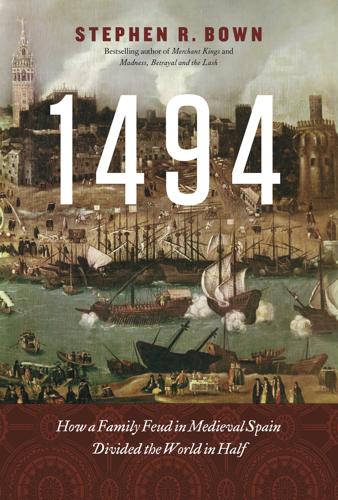
1494: How a Family Feud in Medieval Spain Divided the World in Half
by
Stephen R. Bown
Published 15 Feb 2011
Other legal concepts that inform the modern international law of the sea also stem indirectly from the Treaty of Tordesillas: the right of innocent passage, the definitions of territorial waters, internal waters, a nation’s exclusive economic zone and the definition of the continental shelf. The United Nations Convention on the Law of the Sea, which came into force as a binding international convention on November 16, 1994, owes its origin to the conflict and debates in the centuries following the Treaty of Tordesillas. Although not every signatory country has ratified the convention, only twenty of the world’s countries have refused to recognize or sign it, and it is the closest the international community will likely ever come to consensus on governing an enormous part of the natural world that is common to nearly all. The United Nations Convention on the Law of the Sea is the culmination of a legal and philosophical process that began in the late fifteenth century, when Portuguese mariners discovered a sea route to India and the Spice Islands by sailing around Africa, and Columbus first crossed the Atlantic Ocean.
…
From these foundations, many generations of refinement eventually produced other ideas such as innocent passage, and fishing and mineral rights within an “exclusive economic zone,” which is now based on the continental shelf, the twelve-mile limit or the two-hundred-mile limit, depending on the region. The philosophical principles conceived in the early seventeenth century by thinkers such as Grotius, to provide the intellectual basis for a challenge to the absolutism that underpinned the Treaty of Tordesillas, became the foundation for the United Nations Convention on the Law of the Sea. { epilogue } THE PHANTOM DISAPPEARS AFTER THE moral and spiritual foundation of the Treaty of Tordesillas was eroded by the Protestant Reformation, its intellectual foundation was increasingly challenged in the sophisticated legal and philosophical treatises of the seventeenth century.
…
It blocked possible reconciliation between European religious factions because accepting the secular and spiritual authority of the pope would have denied other nations a role in international exploration, travel and commerce. The intellectual arguments inspired by the Treaty of Tordesillas, beginning most famously with Hugo Grotius’s Mare Liberum, began the philosophical progression towards the modern concepts of the freedom of the seas and international relations, and ultimately led to the United Nations Convention on the Law of the Sea. More prosaically, for centuries the treaty has directed the colonial actions of nations and has resulted in the political geography of the world as we know it today. The Treaty of 1494 had a significant impact on the colonial, cultural and political shape of the world by determining the pattern of European colonization not only in Central and South America, but also in North America and Southeast Asia.
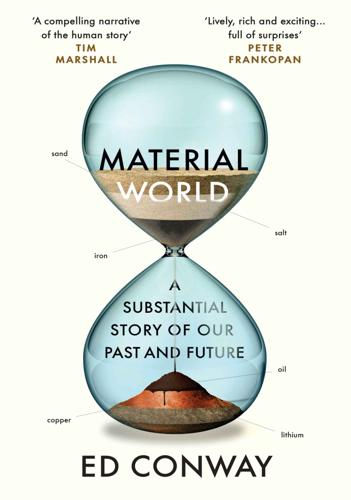
Material World: A Substantial Story of Our Past and Future
by
Ed Conway
Published 15 Jun 2023
That the place feels a little like a time capsule, undisturbed by the outside world for decades, is quite fitting, for one could say much the same thing about the ISA, the United Nations institution whose job it is to manage the majority of the world’s ocean floor, determining who has the right to those minerals beneath the waves. The rule about where the ISA’s jurisdiction kicks in is quite simple: any piece of water that is 200 nautical miles beyond any country’s shore qualifies as part of the ‘high seas’ – an area that is, according to the 1982 UN Convention on the Law of the Sea, the ‘common heritage of mankind’. I know all of this because I was pointedly handed a copy when I arrived at the ISA’s library, from a large bookcase full of identical copies of the convention. That makes the high seas a sort of diplomatic and economic grey area, which means there is little to stop us using them as a vast communal dustbin (we do) or overfishing them (we do).
…
B. 400 , 421 straws, plastic 359 , 360 Street House, North Yorkshire: Anglo-Saxon cemetery 126 sulphates 168 sulphides, seafloor 295 , 299 sulphur 164 , 181 , 220 , 223 , 228 , 321 , 329 , 364 Sumitomo Metal Mining 407–8 supply chains 9 , 11–12 , 17 , 437–40 Surfside, Florida 81 Swan, Joseph 263 Swansea, Wales: copper refineries 260–61 , 262 , 263 Sweden armour-plated steel 229 Kiruna iron mine 247 , 271 Kopparberg 259 shortage of concrete 84 swords 199–200 , 225 sylvite 179 , 180 , 181 Syracuse, New York 132 , 148 , 157 tailings 270 , 272 , 293 , 300 Tainan, Taiwan 107–8 Taiwan 34 , 59 , 65 , 107 , 115 , 116 , 119 , 120 , 148 Taiwan Semiconductor Manufacturing Company (TSMC) 13 , 93 , 108–10 , 112 , 114–15 , 116 , 119 , 120 , 128 , 212 Tata Chemicals (company) 155 , 357 , 358 TDK (company) 402 Teal, Gordon 102n tectonic plates 42–3 , 178 , 291 Tees, River 188 , 189 Teesside 10 , 155 , 187 , 188 , 189 , 328 , 358 tektites 31 telescopes 36 , 48 , 49 Ten Cents War see Saltpetre War Tenabo, Mount, Nevada 2 , 3 , 13 TenCent (company) 115 Tennessee: electricity 251 , 255 Tesla, Nikola/Tesla (company) 58 , 264 , 399 , 403 , 407 , 421 , 427 Gigafactory Nevada 399–400 , 403–4 , 405 , 406–7 , 408 , 422 Texas fracking 322–4 Gigafactory 399 oil and gas 321 , 322 , 330 , 335 Permian Basin 324–5 , 365 wind power 431 Texas Instruments 108 , 115 , 118 Theophilus Presbyter 200n thermoplastics 356 ThyssenKrupp steel plants 207 Tianjin, China 78–9 Goldin Finance 117 (‘Walking Stick’) 79 , 80 Tierney, John 325–6 TikTok 115 tin 21 , 219 , 259 , 277–8 , 416 and bronze 258–9 Titanic , sinking of the 228–9 Titusville, Pennsylvania: oil 312 Tokyo 65 , 234 Tokyo Electron (company) 119 tomatoes, growing 345–8 , 349–50 Tore, Corrado 390 Townshend Arms, Cheshire 149 toys, plastic 354 trains braking systems 41–2 see also rails, train transformers 225 , 254 , 288 , 429 , 436 transistors 89 , 90 , 91 , 93 , 99–100 , 109 and n , 112 , 429 tritium 376 Trump, Donald 204 , 205 , 411 Trumpf (company) 93 , 113 Tskitishvili, Enver 195 , 210 , 211 , 212 , 213 TSMC see Taiwan Semiconductor Manufacturing Company tundishes 226 tungsten 53 , 277 , 278 Tupperware 354 turbines 257 , 435–6 see also wind turbines Turkey 47 , 95 , 217 , 225 , 258 boron 20 chromium 225 Neolithic ruins 75 sand 32 Tutankhamen’s treasures dagger 217 glass beetle 217 necklace 27–8 , 30 , 217 TWINSCAN NXE:3600D 112–13 Tyne Bridge 125 U Thant 276 Udden-Wentworth scale 32–3 , 95 Ukraine Azov Regiment 211 , 212 cements 83 coal industry 208 German invasion (1941) 196 iron and steel industry 206 , 208–9 , 247 ; see also Mariupol neon production 209 Russian invasion (2022) 19 , 20 , 161 , 180 , 195 , 210 , 225 , 292 , 319 , 350 , 365 , 438 Umicore (company) 418–19 , 421 , 422–3 , 434 UN Convention on the Law of the Sea 297 Union Minière du Haut-Katanga 416–18 United Nations Environment Programme 70 United States of America axes 224 and China 104 , 115 , 205 , 207 , 411 Civil War 135 copper mining 261 , 268 , 284 , 303 and deep-sea mining 298 electricity 251–2 , 255 , 256 , 262 , 263 , 264 Environmental Protection Agency (EPA) 3 Federal Highway Administration 80–81 Food and Drug Administration 354 Geological Survey 286 fracking 322–5 , 365 invasion of Okinawa (1945) 213 iron and steel industry 207 , 208 , 224 , 237 , 244–5 oil industry 312–13 , 320–21 , 330 , 335 , 339–42 and Project SLOOP 303 salt mines/salt trade 132 , 144–5 , 148 , 155–6 , 157 and Saudi Arabia 320–21 stockpiled minerals 410–12 Strategic Petroleum Reserve 161 War of Independence 135 see also Texas ; Utah uranium 53 , 243 , 257 , 415 , 416 , 434 US Steel 208 , 237 , 246 Utah copper mine 268 Great Salt Lake 372 Vale (company) 247 , 261 Valium 152 Valley Grown Nurseries, Lea Valley 347–8 vanadium 53 , 225 , 227 vancomycin 152 Veeco (company) 119 Venezuela: oil 321 , 329 , 330 Venice 40–41 Murano glassmakers 35 , 40 salt trade 132–4 video cameras 383 , 401 Vietnam 68 vinyl 355 Vitruvius 340 VLCCs (very large crude carriers) 361–2 Volkswagen (company) 407 Volta, Alessandro 377–8 Wacker (company) 13 , 97–8 , 205 Wald, George 276 Wales copper refineries 260–61 iron and steel industry see Port Talbot silicon-chip manufacturers 212 Walkley, Brant 83 Walraven, Veronique 46 War of the Pacific see Saltpetre War Warmingham, Cheshire 143 , 145–6 , 149–51 water softeners 146 Watson-Watt, Sir Robert 353 Watt, James: steam engines 221 Weaver, Neil 101 , 103–4 Weaver, River 155 , 357 Webb, Brad 240 WeChat (company) 115 Wesseling oil refinery, Cologne 327 , 330 , 332–3 , 334–5 , 337 , 338 , 342–3 , 344 , 431–2 , 434 Westinghouse, George 262 , 263 , 264 , 288 Whaleback, Mount, Australia 234 , 237 whales, sperm 311 , 312 Whan-O (company) 353 wheat 275 , 348 , 441 Whitby, North Yorkshire 1887, 188 , 189 Woodsmith polyhalite mine 187–8 Whittingham, Stan 380 , 381 , 383 Wickham, Henry 51n Wieliczka salt mine, Krakow, Poland 144 Wilkinson, John 221 Wimbledon tennis courts 187 wind turbines 15 , 257 , 273 , 319 , 373 , 427 , 432 , 435 , 436 offshore 288 , 427 , 433 , 435 recycling blades 420 window tax 54–5 Winnington, Cheshire: ICI lab 357–8 Winsford mine, Cheshire 158–9 , 160–61 , 181 wood 218 , 222 , 429 shortages 218 and n , 219 Woodward, Harry Page 235 World Economic Forum (2015) 229 World War, First 46–52 , 56 , 152 , 170 , 173 , 174 , 180 , 336 , 440 World War, Second 57 , 134–5 , 195–6 , 211 , 225 , 229 , 299 , 333 , 336–9 , 352–3 , 410 , 439 Wotsits 146 Wright, Frank Lloyd 80 Wright, Theodore: Wright’s law 427–8 , 429 , 437 , 442 Xi Jinping 119 Xinjiang Uyghur Autonomous Region, China 104 Yangtze River 69–70 Yemen 320 , 363 Yoshino, Akira 382 , 383 Zambia: cobalt 294 Zechstein Sea 177 , 178–9 , 180 , 181 , 182 Zeiss, Carl 48 , 52 , 56 , 93 , 113 , 114 , 381 Zeng, Robin 409 zinc 17 , 219 , 377 , 415 sub-sea 295 THIS IS JUST THE BEGINNING Find us online and join the conversation Follow us on Twitter twitter.com/penguinukbooks Like us on Facebook facebook.com/penguinbooks Share the love on Instagram instagram.com/penguinukbooks Watch our authors on YouTube youtube.com/penguinbooks Pin Penguin books to your Pinterest pinterest.com/penguinukbooks Listen to audiobook clips at soundcloud.com/penguin-books Find out more about the author and discover your next read at penguin.co.uk EBURY UK | USA | Canada | Ireland | Australia New Zealand | India | South Africa Ebury is part of the Penguin Random House group of companies whose addresses can be found at global.penguinrandomhouse.com .

The Moon: A History for the Future
by
Oliver Morton
Published 1 May 2019
The terms of the Moon Treaty would not make commercial exploitation of lunar resources impossible. The UN Convention on the Law of the Sea, signed in 1982, applies the same concept of “the common heritage of all mankind” to resources on and below those parts of the seabed beyond continental shelves and territorial waters. This is one of the reasons why the United States Senate, despite being urged to do so by presidents of both parties, has never ratified the Convention on the Law of the Sea, either. But the convention’s application of the common-heritage principle does not preclude commercial development. The Convention on the Law of the Sea created the International Seabed Authority as a way to spread the benefits of mining the ocean floor while seeking to maintain incentives for investment.
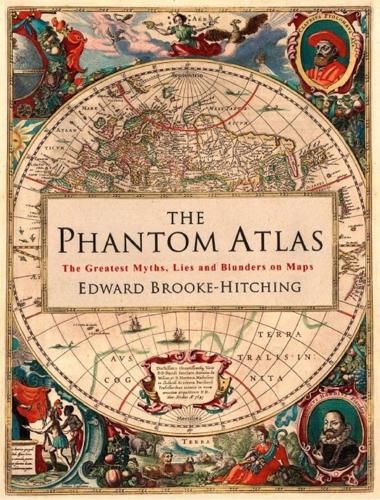
The Phantom Atlas: The Greatest Myths, Lies and Blunders on Maps
by
Edward Brooke-Hitching
Published 3 Nov 2016
By the middle of the nineteenth century, the inland sea myth had finally dried up. Transporting canoes across the countryside, for use on the theoretical inland sea. BERMEJA 22°33'N, 91°22'W Also known as Vermeja There is a curious phenomenon in marine law known as a ‘Donut Hole’. Donut Holes are legal loopholes created by the passing of a 1982 UN convention on the Law of the Sea, which essentially states that the area of water within 200 miles (322km) from the coast of a country is the Exclusive Economic Zone (EEZ), or nautical sovereignty, of the respective nation. The Donut Holes appear when the perimeters of the EEZs of two countries don’t quite meet – accordingly, these no-man’s lands are deemed pockets of international water.
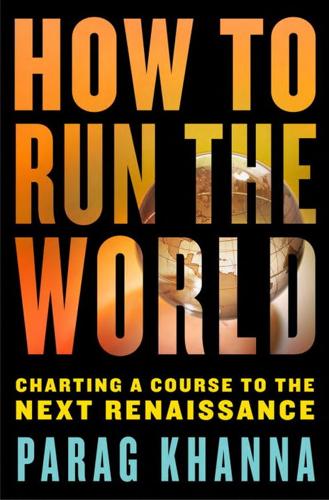
How to Run the World: Charting a Course to the Next Renaissance
by
Parag Khanna
Published 11 Jan 2011
Even peaceful diplomatic haggling—the two sides have exchanged maps for decades while waiting for the upper hand—demonstrates latent animosities unbecoming of powers that wish to be seen as great and benevolent. The World Court at The Hague has border dispute cases piling up, and overlapping maritime claims are now being registered according to the UN Convention on the Law of the Sea. But who will arbitrate these hundreds of potential flashpoints? There is no better time to remap the world and move beyond the arbitrary postcolonial borders that have become the hand-me-down suits of international relations that never quite fit. This was President Woodrow Wilson’s vision after World War I: to promote ethnic self-determination but also to embed nations as equals into economic and other institutional bonds such as the League of Nations.
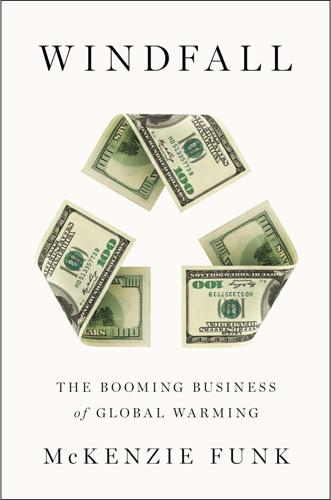
Windfall: The Booming Business of Global Warming
by
Mckenzie Funk
Published 22 Jan 2014
exclaimed George Newton, a mustachioed former nuclear-submarine captain and longtime commissioner. “Shouldn’t Japan, which has a large fleet, take the lead? Or Maersk, the big shipping company in Denmark? Shouldn’t Denmark be in on this?” He explained that the right of “innocent passage” through active straits was enshrined in the UN Convention on the Law of the Sea—the so-called constitution of the oceans, a treaty signed at the latest count by 164 countries. (The United States drafted much of the law but, owing to conservative wariness of UN pacts, is not yet party to it.) Newton granted that legal arguments over the Northwest Passage are complicated by the ice: It is normally frozen over, so it’s difficult to call it an active strait.
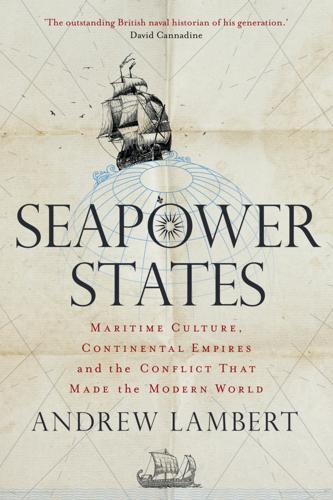
Seapower States: Maritime Culture, Continental Empires and the Conflict That Made the Modern World
by
Andrew Lambert
Published 1 Oct 2018
Both address continentalised seas through which claims and counter-claims are based on ridiculous lines drawn on charts of the deep ocean, as if the high seas could be turned into provinces. In this exercise the Chinese have been more inventive, stretching logic and cartography into new forms, while US responses cite the United Nations Convention on the Law of the Sea of 1982, an International Agreement that Washington has signally failed to sign. The end result of this contest, consciously or otherwise, will be the completion of the ultimate continental agenda: annihilating the ability of sea states to resist land-based hegemons. The continentalisation of maritime space would replace freedom, choice and progress with the unending monotony of universal continental monocultures.
…
The Chinese Empire would survive without a navy, but not without an army. China is important because the greatest challenge facing contemporary sea states is the creeping continentalisation of maritime space, restrictions on the right to use the seas. The extension of territorial waters and Exclusive Economic Zones in the United Nations Convention on the Law of the Sea provided a legal framework to challenge the age-old right of innocent passage by shrinking the ‘high seas’. China has used such territorial claims, along with the seizure of islands and shoals from weak neighbours and the creation of artificial islands, to sustain wholly unfounded claims to exclusive maritime dominion.
…
(i), Plate 15 Mahan and (i) Ruskin and (i) shaping a British maritime identity (i), (ii), (iii) n3 Thomas Cole inspired (i) towing the Temeraire (i) William III at Torbay (i) Tuscany (i) Twelve Year Truce (1609) (i), (ii) tyrants (i) n54 Tyre Alexander destroys (i) Assyrian control (i) Babylonians sack (i) Carthage established by (i), (ii), (iii) coinage (i), (ii) enslavement (i) grandest city of the era (i), (ii) last king in exile (i) Ruskin on (i), (ii), (iii) Sidon absorbed (i) survives Assyria (i) ultimate sea city (i) Tyrrhenian Sea Carthaginian dominance (i) Carthaginian loss of control (i) control of (i), (ii) Cypriot routes (i) Greek-speaking trade network (i) Levantine trade and (i), (ii), (iii) Phocean Greek victory (i) Ugarit (Ras Sharma) (i), (ii), (iii) Ukraine (i), (ii) Uluburun shipwreck (i), (ii) Uluj Ali (i), (ii) United Kingdom (i), (ii), (iii) see also Britain; England United Nations Convention on the Law of the Sea (1982) (i), (ii) United Provinces see Dutch Republic United States (i), (ii) Britain and (i), (ii) China and (i), (ii), Plate 18 Civil War (i) destroys British seapower (i) European model for (i) isolationism (i) Mahan’s objectives for (i), (ii) maintaining a navy (i), (ii), (iii), Plate 17 not a seapower?
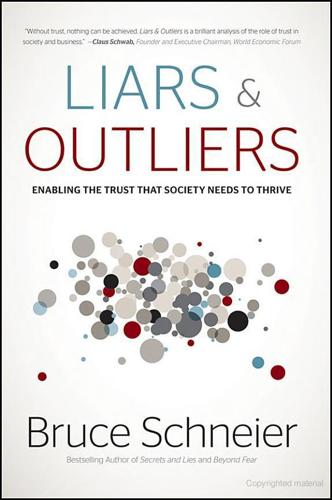
Liars and Outliers: How Security Holds Society Together
by
Bruce Schneier
Published 14 Feb 2012
And, so as not to entirely pick on the U.S., the International Whaling Commission's loophole for research that Japan exploits to hunt whales commercially is another example. Although it's hard to prove, there are many examples of laws believed to be deliberately written with loopholes to benefit someone. The UN Convention on the Law of the Sea provisions on international fisheries are deliberately ambiguous, making much of it impossible to enforce. Also at the UN, Security Council Resolution 1441—used to justify invading Iraq—seems to have been designed to be ambiguous enough to both support and oppose the use of force. More generally, loopholes are ways institutional pressure is subverted by defectors to do things it wasn't originally intended to do.
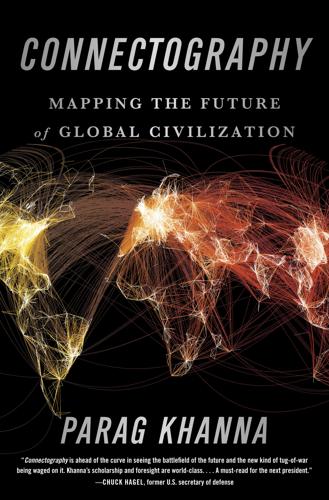
Connectography: Mapping the Future of Global Civilization
by
Parag Khanna
Published 18 Apr 2016
Now that China has acquired this latest technology, it is no longer dependent on foreign oil companies less willing to partner with it in disputed waters; it can just go it alone. China is building far more HYSY-like platforms than it is aircraft carriers. China, Vietnam, and the Philippines are all signatories to the UN Convention on the Law of the Sea, widely considered the “constitution for the seas,” yet historical claims stemming from previous wars and bilateral agreements have trumped respect for its provisions. China’s now infamous “9-dash line” map—most recently issued with ten dashed lines—depicts sovereign claims hanging downward like a tongue along the Vietnamese coast, along Borneo island, and past the Philippines to Taiwan.

The End of Astronauts: Why Robots Are the Future of Exploration
by
Donald Goldsmith
and
Martin Rees
Published 18 Apr 2022
In the vocabulary of mining operations, however, “recovery” has nothing to do with losing what was once possessed; instead, it refers to the extraction of ore from the ground or the seabed. The word’s gentle nature contrasts with the more accurate term “exploitation,” which often implies disapproval, though in legal matters it often carries only a neutral meaning. For example, in 1982 the United Nations Convention on the Law of the Sea established an International Seabed Authority (ISA) to set rules for the large portion of the seabed that lies beyond the jurisdiction of any nation.2 By now, 168 countries have signed on to the convention, but the United States has not. According to the ISA’s website, its Mining Code “refers to the whole of the comprehensive set of rules, regulations and procedures issued by ISA to regulate prospecting, exploration and exploitation of marine minerals in the international seabed Area.”

Revolution at Point Zero: Housework, Reproduction, and Feminist Struggle
by
Silvia Federici
Published 4 Oct 2012
See on this subject the important article by Ana Isla, “Who Pays for the Kyoto Protocol?” (2009), where the author describes how the conservation of the biodiversity has provided the World Bank and other international agencies with the pretext for the enclosure of the rain forests, on the ground that they represent “carbon sinks” and “oxygen generators.” 5. The United Nations Convention on the Law of the Sea, passed in November 1994, establishes a two-hundred-mile offshore limit, defining an Exclusive Economic Zone, where nations can exploit, manage, and protect resources, from fisheries to natural gas. It also sets regulations for mining in deep sea and for the use of resulting profit. 6.
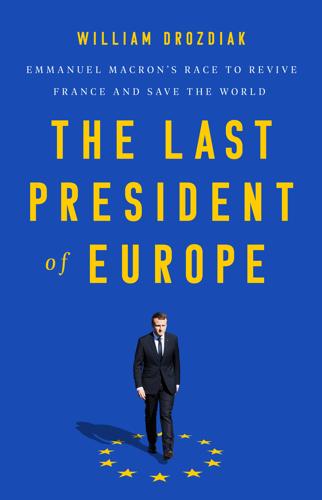
The Last President of Europe: Emmanuel Macron's Race to Revive France and Save the World
by
William Drozdiak
Published 27 Apr 2020
France has deployed more than seven thousand troops in the area to maintain security over its five territories, including New Caledonia and French Polynesia, which are populated by more than 1.5 million French citizens. Besides protecting its overseas territories and citizens, France has adopted a robust approach to preserving freedom of navigation through frequent naval patrols in the South China Sea under the 1982 United Nations Convention on the Law of the Seas. Macron has made several official visits to the region to emphasize France’s “Pacific pivot” and its enhanced security relationships with Japan and Australia. In 2016, France struck a $40 billion deal with Australia to supply twelve new submarines. Paris has also signed defense cooperation pacts with Australia, Japan, and India that Macron says should serve as “the heart of a new axis of democracies in the Indo-Pacific.”
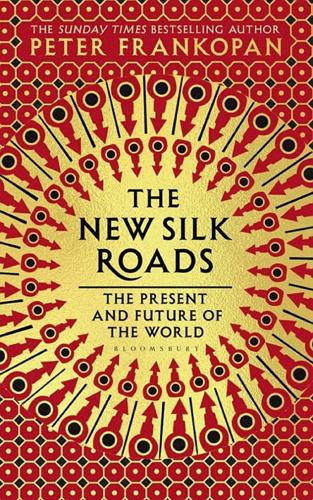
The New Silk Roads: The Present and Future of the World
by
Peter Frankopan
Published 14 Jun 2018
Providing security for personnel and investments that are part of the Belt and Road Initiative has also evolved in countries like Pakistan, where high-profile cases such as the kidnapping and murder of two schoolteachers in Balochistan in 2017 have led to the creation of a new 15,000-strong force Pakistani soldiers that will protect the China–Pakistan Economic Corridor and safeguard Chinese nationals working as contractors on projects that range from roads to rail to power-plant construction.76 * The expansion of China’s perception of its national security interests has played an important part in the development of locations in the South China Sea and beyond. In 2013, dredgers began creating a series of new, man-made islands that can serve as military bases. These steps prompted considerable concern from other countries in this region. Following an appeal by the Philippines that China’s actions violated the United Nations Convention on the Law of the Sea, the Permanent Court of Arbitration ruled in 2016 that there was no legal basis for China to claim historic rights, while also finding that there had been several breaches of the obligations set out in the Convention. It also found that the fact that China’s refusal to accept or participate in the Philippines’ action did not prevent the court reaching its decisions, on the basis that Annex VII of the Convention states that the ‘[a]bsence of a party or failure of a party to defend its case shall not constitute a bar to the proceedings’.77 China’s refusal to accept the court’s ruling has raised tensions across the region, not least because of the continued militarisation of the artificial islands and construction of landing strips, aircraft hangars, underground fuel reservoirs, barracks – and the installation of radar-jamming equipment and underwater sensors, which was followed by the deployment of anti-ship cruise missiles and long-range surface-to-air missiles in the spring of 2018.
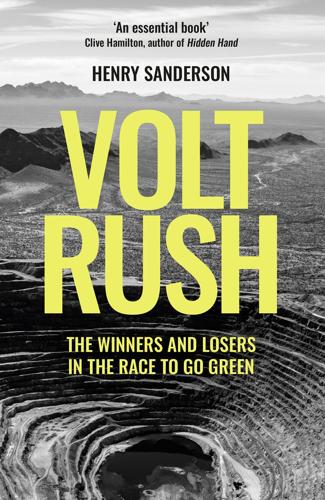
Volt Rush: The Winners and Losers in the Race to Go Green
by
Henry Sanderson
Published 12 Sep 2022
But that was changing, as developing countries wanted to ensure any mining benefited them and that rich countries did not run off with the loot. In a speech to the United Nations General Assembly in 1967 the Maltese ambassador Arvid Pardo had proposed that the ocean floor be the ‘common heritage of mankind’.19 That led to the 1982 United Nations Convention on the Law of the Sea, which established governance over international waters outside of a country’s coastal waters, which were defined as 200 nautical miles off the coast. Developing countries pushed for the establishment of a body to regulate deep sea mining, the International Seabed Authority (ISA), which finally came to fruition in 1994, based in Kingston, Jamaica.
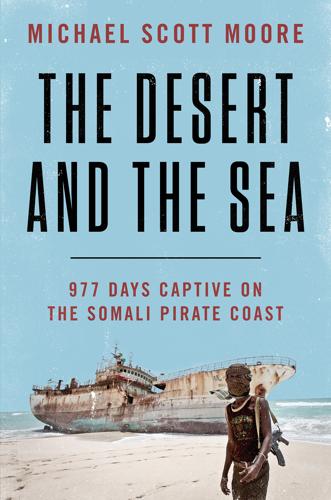
The Desert and the Sea: 977 Days Captive on the Somali Pirate Coast
by
Michael Scott Moore
Published 23 Jul 2018
The U.N. also recognizes a two-hundred-mile “exclusive economic zone” for most countries, where it would break treaties for foreign interests to fish or, say, drill for oil. The legal hitch for Somalia was that no government in Mogadishu had ever claimed the two-hundred-mile zone under the 1982 United Nations Convention on the Law of the Sea. “Somalia doesn’t have an EEZ because it’s never claimed an EEZ,” a U.N. expert told me in early 2012.* Some foreign vessels therefore came in to exploit this stretch of water, and some pirates claimed to defend it. The Hobyo pirates, in any case, had captured the Naham 3 hundreds of miles off Somalia.
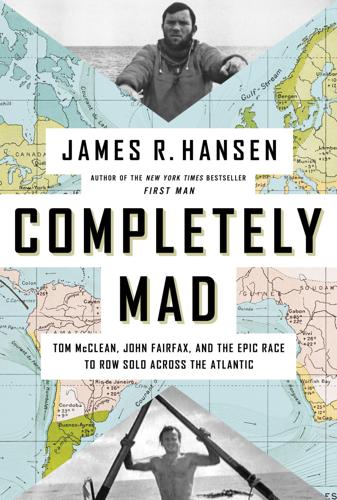
Completely Mad: Tom McClean, John Fairfax, and the Epic of the Race to Row Solo Across the Atlantic
by
James R. Hansen
Published 4 Jul 2023
Critics called Tom’s enterprise “a self-directed and largely fruitless attempt to assert Britain’s territorial claim to the islet.” The United Kingdom had claimed Rockall in 1955 and incorporated it as a part of Scotland in 1972. However, three nearby countries—Ireland, Iceland, and Denmark—did not recognize the UK’s right to Rockall, citing the United Nations Convention on the Law of the Sea, which stated that “rocks which cannot sustain human habitation or economic life of their own shall have no exclusive economic zone or continental shelf.” Given the controversy, McClean sought to establish that Rockall could, in fact, sustain habitation, which thereby would justify Britain’s claim not just to Rockall but, more importantly, to an “exclusive economic zone” whose “special rights” included use of that zone’s surrounding marine resources, including energy production from water and wind.
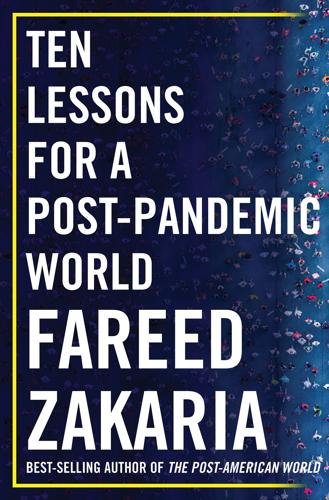
Ten Lessons for a Post-Pandemic World
by
Fareed Zakaria
Published 5 Oct 2020
Any Chinese attempt at a full “breakout” from all global rules and norms would draw strong opposition from its neighborhood and beyond. Perhaps most important, the best way to deter China is to strengthen the system that constrains it. That would, of course, require that the United States join and support bodies like the Convention on the Law of the Sea and the International Criminal Court. If America flouts the rules and norms it has little standing to criticize China for doing the same. America’s most significant contribution to international life has been that, unlike every other victorious great power in history, after decisively triumphing—in the world’s bloodiest conflict—it chose to forgive, rebuild, and rehabilitate the vanquished.
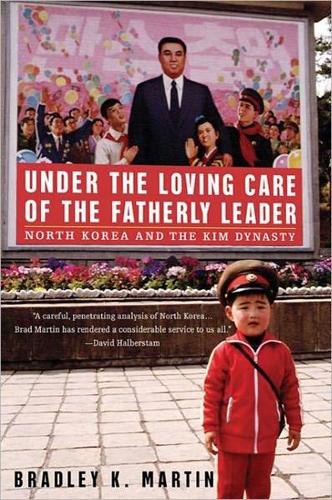
Under the Loving Care of the Fatherly Leader: North Korea and the Kim Dynasty
by
Bradley K. Martin
Published 14 Oct 2004
(Judging from the lack of a citation, it appears Lerner may not have been cognizant of Baldwin’s important arguments for an international view of the incident in “Patrolling the Empire.”) 39. Armbrister, Matter of Accountability, pp. 263, 284. Washington claimed that the Pueblo was legally situated in international waters when captured and cited the 1958 convention on the law of the sea, which guaranteed ships on the high seas immunity from the jurisdiction of other nationalities. Pyongyang, however, had never signed the convention. Pyongyang went to great lengths to claim that the ship was inside North Korean territorial waters, and to that extent bolstered Washington’s argument that the territorial waters issue was relevant.